Wrapping Up the 2025 Chicago Film Festival


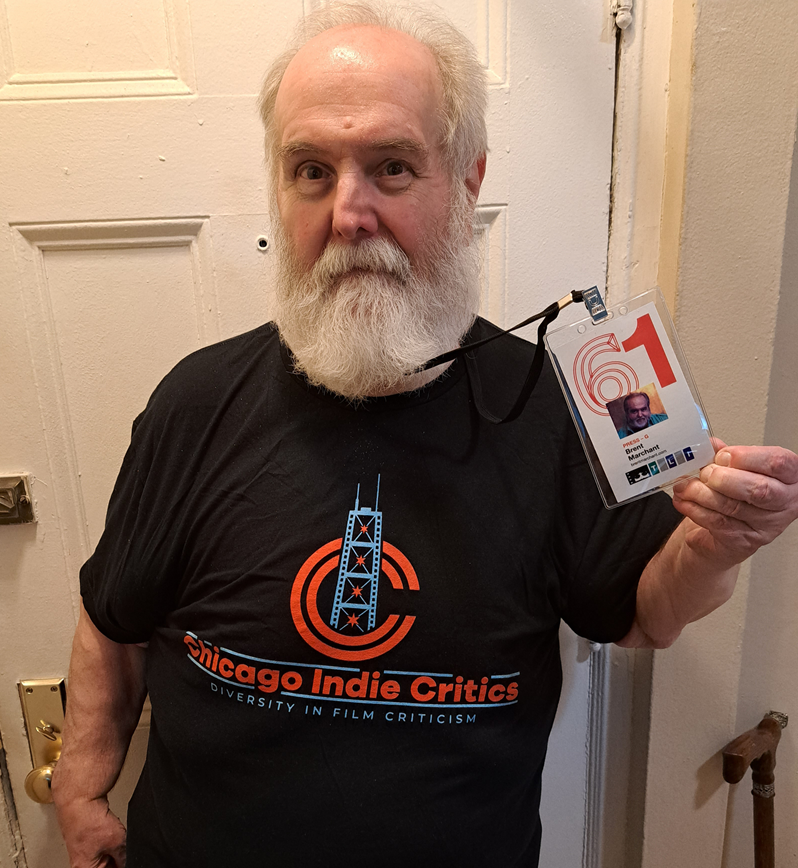
With this year’s 61st edition of the Chicago International Film Festival in the books, I’ve completed my screenings for 2025. In my first year as a member of Chicago Indie Critics and the press corps covering the event, my experience was significantly different from past festivals though certainly eminently enjoyable.
I viewed 20 films in all, which is considerably more than in recent years, and my thoughts on those pictures appear below. They are ranked in descending order from what I liked best to what I liked least. Films with equal festival-based rating scores are listed in alphabetical order. It should also be noted that my festival-based scores may not identically match my scores on the movie ratings web sites to which I regularly post (Letterboxd, Imdb.com, TMDB.com), with some web site-based ratings being higher or lower than what I accorded the films in my festival ratings. In addition to the titles, ratings and countries of origin for the various films I watched, I have also included information (where available) on the pictures’ web sites, trailers, film clips, relevant festival competition categories and awards, festival premiere status, and related hashtags.
Given the volume of films shown at the festival, I obviously was unable to screen all of the presentations or even everything that I would have liked to have seen. However, in the upcoming weeks, I plan to review a number of the movies on which I missed out at the festival, so be sure to check back for my thoughts on those other pictures, both on my web site’s Quick Cuts Page and/or Welcome or Blog Pages. With movie awards season just beginning to heat up, there will be a lot to see in the coming weeks, and I plan to be on top of it!
With that said, then, here’s what I screened at the festival and what I thought of those films:
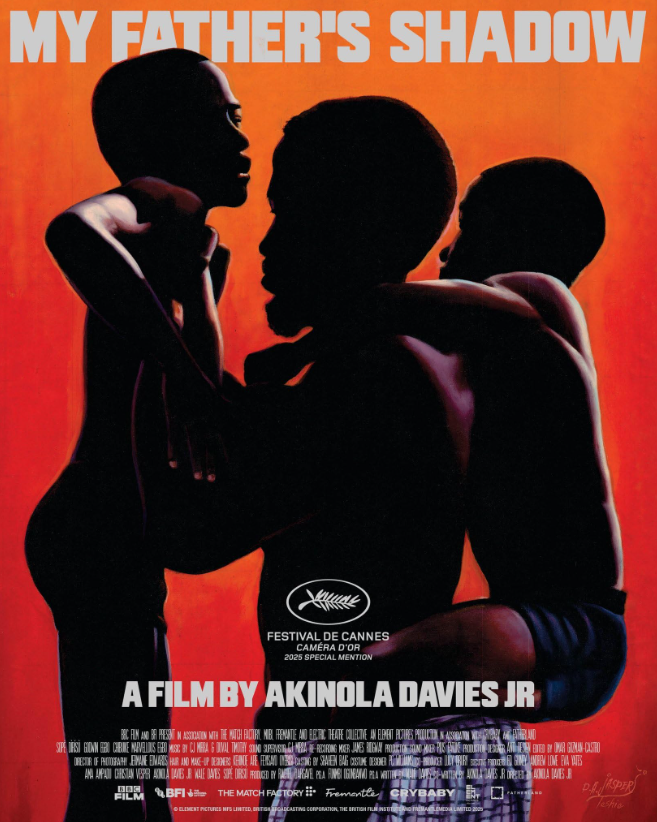
“My Father’s Shadow” (UK/Nigeria/Ireland) (5/5) (Special Mention Award Winner, International Competition); Letterboxd (4.5/5), Imdb.com (9/10), TMDB.com (9/10), Imdb.com critics review; Web site, Film Clip; #BrentMarchant #MyFathersShadow #ChiFilmFest #Nigeria #Lagos #fathersandsons #AkinolaDaviesJr #1993election #daytrip
Fathers and sons often have complicated relationships. In many instances, boys often don’t know their dads as well as they would like (or at all), leaving them with many unanswered questions about these individuals whom they dutifully but frequently inexplicably call “parent.” So it’s entirely understandable how the curious would jump at the chance to get to know their fathers better when such opportunities present themselves. So it is for two young boys, Aki (Godwin Egbo) and Remi (Chibuike Marvellous Egbo), who are invited to join their father, Folarin (aka Kapo) (Sope Dirisu), on a day trip from their remote village to Lagos, Nigeria’s largest city, where their dad works. As a diligent head of the household, he often spends months at a time in Lagos without seeing his sons or their mother, Bola (Efon Wini), a noble but significant practice that leaves a sizable gap in the character of the family’s home life. Because of Folarin’s many extended absences, his sons know little about him other than his apparently profound love for them and his unwavering commitment to supporting them and his wife. But there’s more to this lack of awareness than just his physical absence; Folarin is, by his nature, a man of mystery in many ways, and Aki and Remi know virtually nothing about this aspect of their father’s life. This includes his past in Lagos, his courtship and relationship with Bola, and, perhaps most notably, his somewhat outspoken political outlook, a critical element of his background in light of the story’s backdrop, the highly controversial 1993 national election and its troubling aftermath. Over the course of their journey, Folarin gradually reveals himself to his sons, telling them stories about, and showing them the haunts of, his past, gestures that provide him with windows into his character. They also provide opportunities for imparting insightful life lessons, many of which offer a profound look into Folarin’s previously undisclosed self, the kinds of moments that usually leave lasting and meaningful impressions. Anyone who has ever had a relationship with his father akin to the one portrayed here will undoubtedly find this a touching and comforting story, one sure to tug at the heartstrings and possibly bring a tear or two to one’s eye (so keep the hankies handy). The film also provides an enlightening, eye-opening lesson into a key event in the history of Nigeria’s post-colonial era, one that’s relayed clearly and pointedly but without becoming unduly belabored, depicting a time in the country’s past that many Westerners likely know little about. But, perhaps most importantly, this is a moving tale (said to be semi-autobiographical of writer-director Akinola Davies Jr. in his feature film debut) that’s certainly affecting on multiple levels, thanks in large part to the picture’s fine script and excellent performances of its three principals, including the two young newcomers. “My Father’s Shadow” is clearly one of the most pleasant surprises to emerge out of this year’s festival, one well worth the time to watch, savor and enjoy.
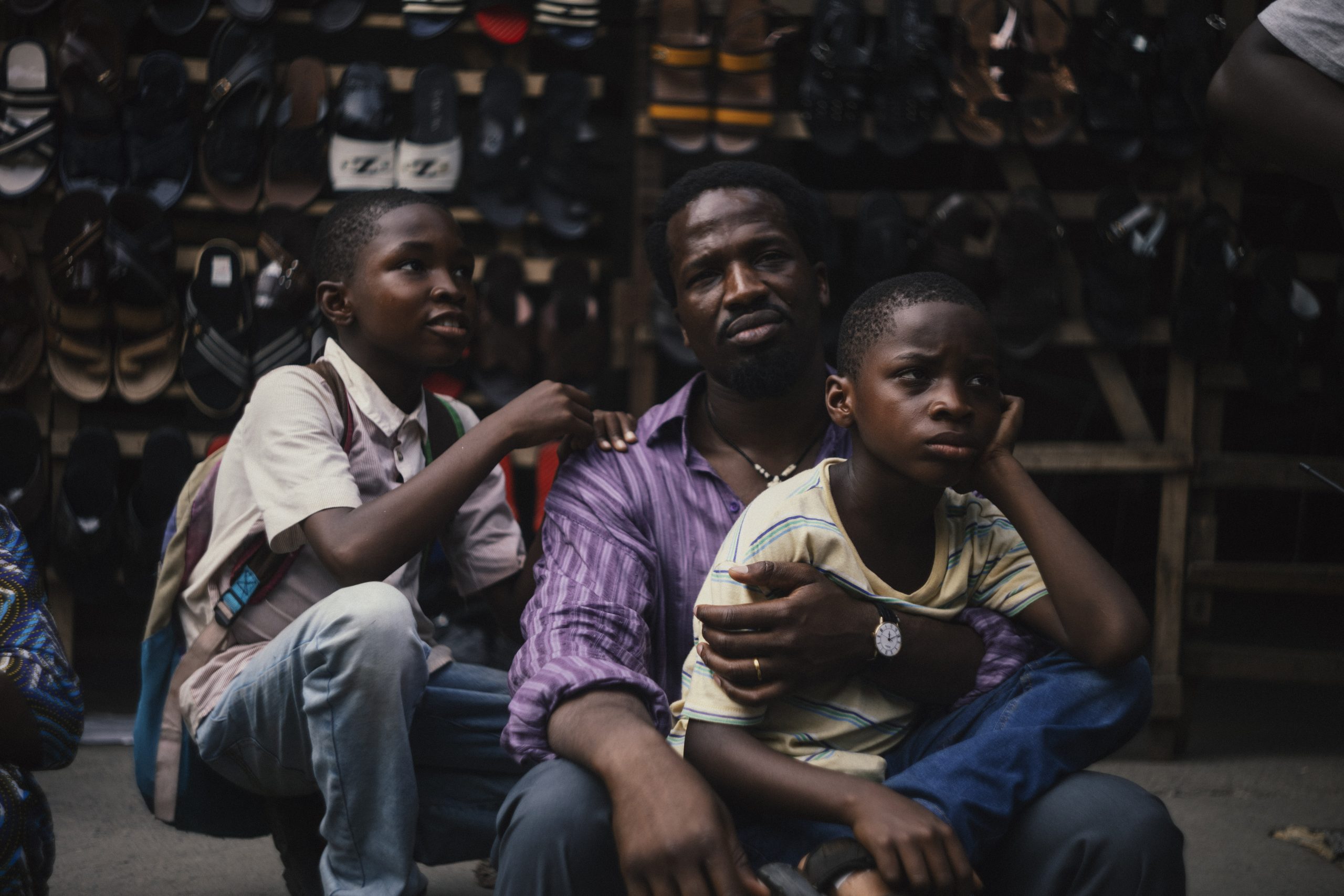

“What Marielle Knows” (“Was Marielle weiss”) (Germany) (5/5); Letterboxd (4.5/5), Imdb.com (9/10), TMDB.com (9/10), Imdb.com critics review; Web site, Trailer; #BrentMarchant #WhatMarielleKnows #ChiFilmFest #Germany #telepathy #honesty #darkdryhumor #comedydrama
Honesty is a subject on seemingly everyone’s mind these days, for a variety of reasons. It’s widely regarded as something inviolable and sanctimonious, not to be questioned or minimized. But can there be such a thing as too much honesty, situations in which revealing more than what one realistically needs to know can be detrimental? And what if the truths that surface in those scenarios are impacted by a phenomenon like telepathy, where purposely containing the unrestricted and unfiltered flow of information can be challenging, if not impossible? Such are the circumstances set out in writer-director Frédéric Hambalek’s second feature. This contemplative dark comedy-drama tells the story of Marielle (Laeni Geiseler), an adolescent who develops the ability to see and hear what others are seeing, doing and thinking (even when they’re not present) after she was slapped across the face in an altercation with an acquaintance. Needless to say, she’s mystified by this unexpected development and consults her parents (Julia Jentsch, Felix Kramer) for advice on how to explain and handle it. But mom and dad dismiss their daughter’s assertions out of hand – that is, until she recites a detailed litany of what happened to each of them that day. Suddenly, they’re not so sure of themselves, especially when Marielle brings up potentially sensitive (and embarrassing) revelations involving the truthfulness of their thoughts and the events transpiring in their respective personal and professional lives. And, the longer Marielle’s ability persists, the more complications it causes for all concerned – some of them hilarious and others not so funny. So how is the family supposed to resolve this situation before matters get completely out of control, especially when excessive honesty flows so readily that it becomes weaponized as a tool of manipulation and blackmail? This superbly written comic morality play examines these issues from an array of angles, including the potential (and actual) permutations that arise from these conditions, frequently complemented with hefty helpings of wryly droll humor and a stark but fittingly appropriate classical soundtrack featuring the works of Beethoven and Schubert. But, as the story progresses, the narrative grows increasingly more palpable, raising the thorny question of whether a solution is even attainable, especially when only difficult options hold out the only hope available. In many respects, this release calls to mind issues like those raised in such films as “You Hurt My Feelings” (2023) but with a greater degree of depth and intensity, conditions we must all be prepared to address when circumstances like this arise, regardless of whether telepathy plays a role in the scenario. And that’s no laughing matter.

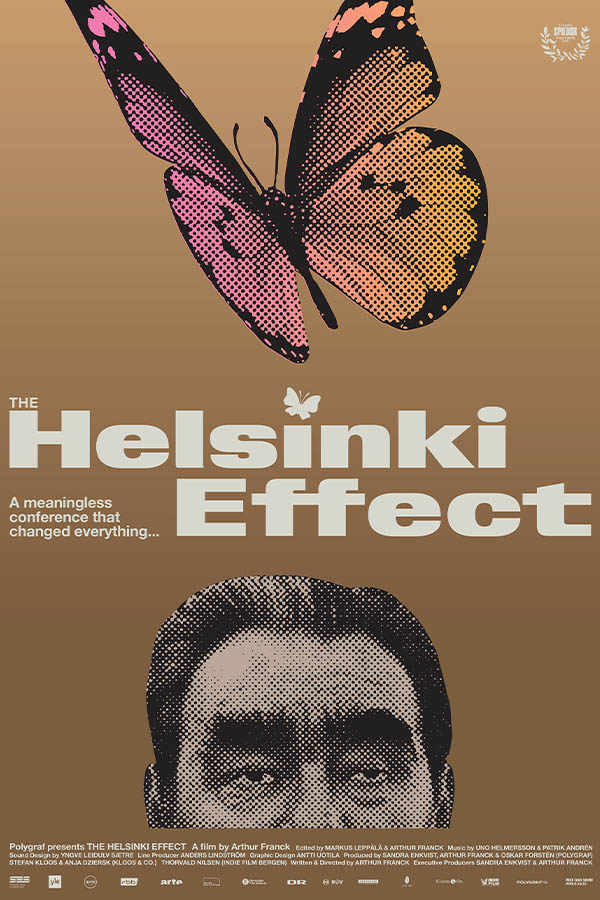
“The Helsinki Effect” (Finland/Germany/Norway) (4/5) (Documentary Competition) (North American Premiere); Letterboxd (4/5), Imdb.com (8/10), TMDB.com (8/10), Imdb.com critics review; Web site, Trailer; #BrentMarchant #TheHelsinkiEffect #ChiFilmFest #CSCE #Finland #LeonidBrezhnev #HenryKissinger #GeraldFord #Europeansecurityandcooperation #UrhoKekkonen
A widely held theory known as “the butterfly effect” maintains that seemingly small actions, like a butterfly flapping its wings on one side of the planet, can actually have tremendous impact at a distance, such as the ability to affect weather patterns on the other side of the globe. And, as this informative and entertaining documentary from writer-director Arthur Franck shows, it’s possible to see how this principle might apply in areas other than the fallout that stems from insect behavior. In 1975, 35 world leaders from Europe and North America gathered in Finland to sign a detailed but nonbinding document known as the Helsinki Agreement. Billed as an initiative aimed at promoting détente by addressing security and cooperation concerns in Europe for parties on each side of the Cold War, the conference at which the agreement was to be signed was eagerly supported by Soviet head of state Leonid Brezhnev, largely to formally establish firm borders separating the boundaries between NATO and Warsaw Pact nations. The West, meanwhile, was less enthusiastic, with officials like Secretary of State Henry Kissinger believing that this undertaking wouldn’t fundamentally change circumstances unless concessions could be secured from behind the Iron Curtain. And, as the protracted negotiations for the agreement dragged on, the Soviets grew impatient, ultimately agreeing to the demands of the US and its allies. With the deal set, the event proceeded, though not with much public interest, despite widespread media coverage and potentially significant ramifications waiting in the wings, developments that eventually unfolded and left the Soviets gobsmacked at what ultimately transpired. In telling the complicated story behind this event, the filmmaker does a superb job of making potentially indiscernible material understandable, even fun to watch. By breaking down the history of this venture into 12 easily digestible segments, aided by revealing archive footage, excerpts from previously classified documents and easily understood graphic aids, this painstakingly crafted documentary meticulously shows how the conference’s many contributing elements came together to make this effort a reality, one that unexpectedly unleashed “the Helsinki effect” in the process. It’s indeed refreshing to watch an engaging and important history lesson such as this without being bogged down in tedious, uninteresting detail that might otherwise serve as a surefire cure for insomnia. Quite the opposite here, to be sure, thanks in large part to this offering’s inventive approach and effective use of ample tongue-in-cheek humor. Watch this one, and you may never look upon history class in quite the same way ever again.
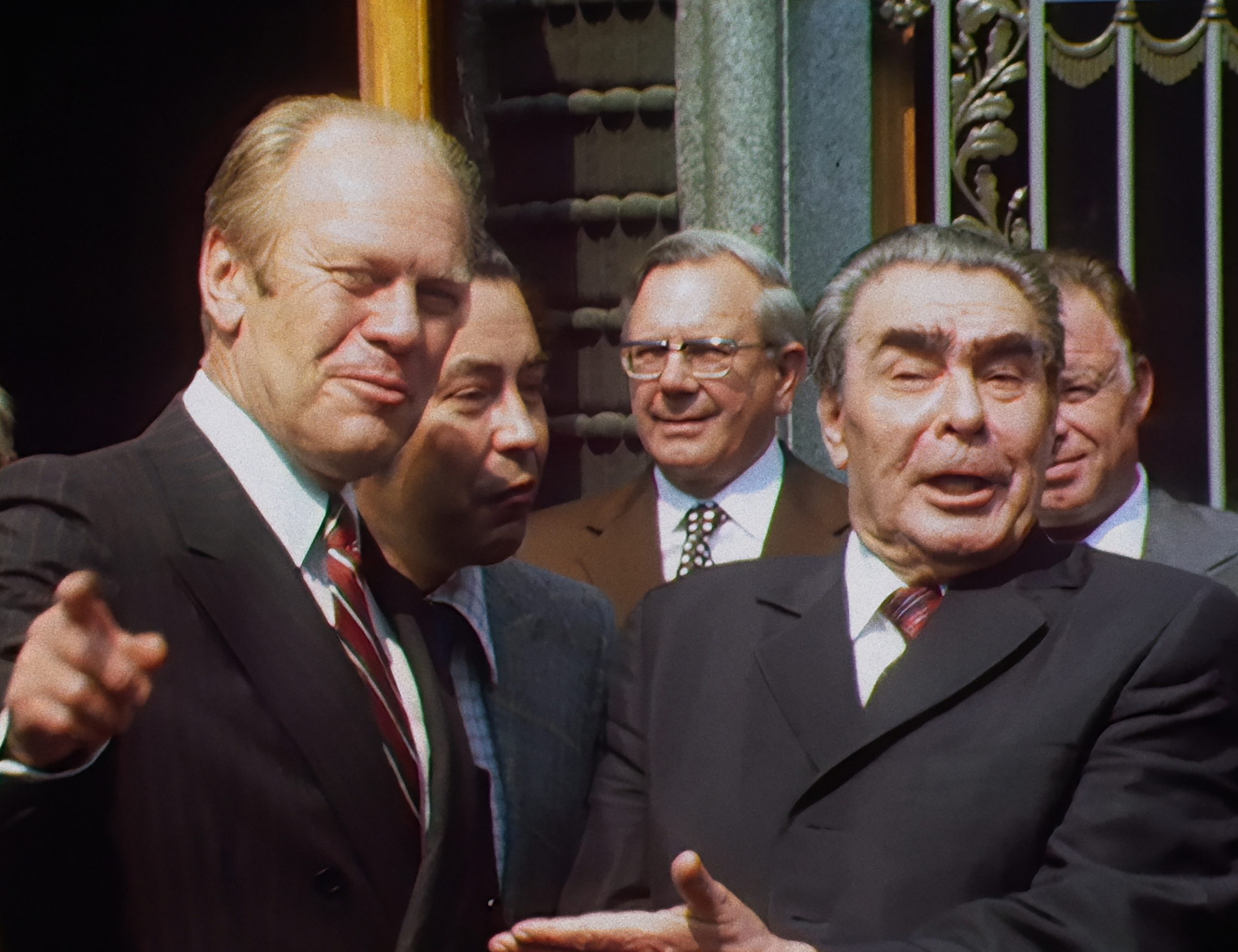
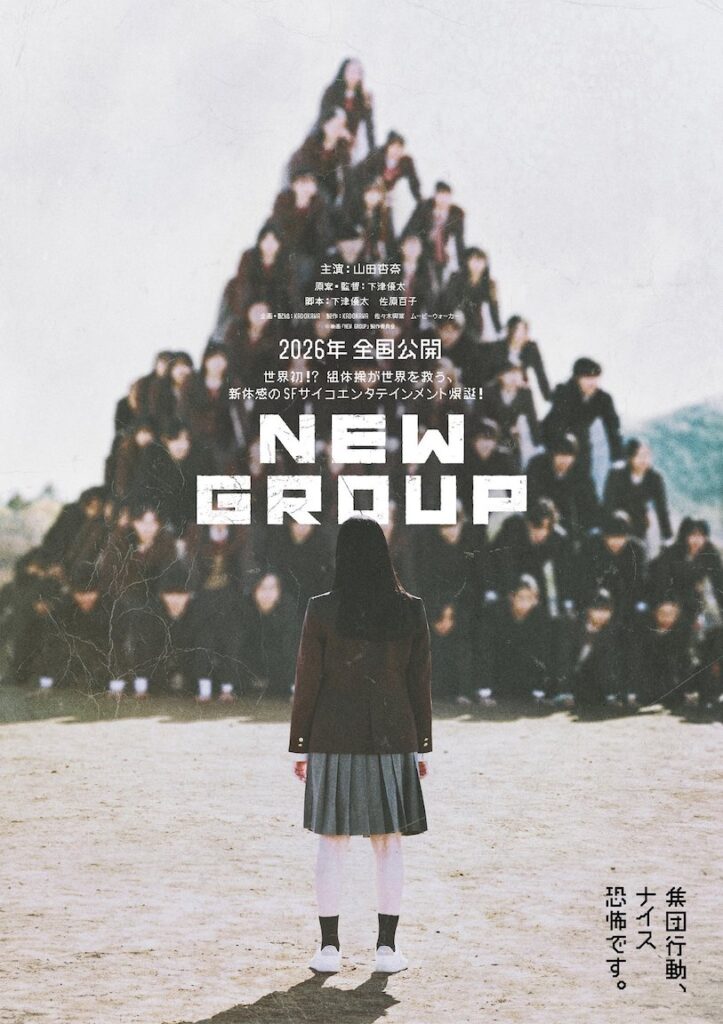
“New Group” (Japan) (4/5); Letterboxd (4/5), Imdb.com (8/10), TMDB.com (8/10), Imdb.com critics review; Web site, Trailer; #BrentMarchant #NewGroup #ChiFilmFest #Japan #humanpyramid #highschool #conformity #EugeneIonescu #Rhinoceros #CarolineMyss
In an age where asserting our independence and individuality has become something of a personal liability, it’s refreshing to see that some of us have not lost sight of its value and – in the case of this picture – have even gone so far as to celebrate the notion in a work of art. Such is the case in writer-director Yûta Shimotsu’s second feature effort, a truly strange but fun, insightful meditation on the perils of unquestioned conformity. In a nation like Japan, where a premium is placed on complying with cultural and social norms, those who seek to affirm their personal sovereignty are frequently looked upon with disdain and ostracism, perhaps backed with verbal or physical intimidation (including of a violent nature) and unbridled bullying (as seen in weaponized tools like social media). That’s the experience of Ai (Anna Yamada), a soft-spoken but self-aware high schooler whose peers spontaneously (and inexplicably) begin engaging in forming human pyramids. Their bizarre behavior is soon blessed by the school’s administration, activity that’s regarded as a hallmark of being a good, contributing member of society. But contributing of what? These nonsensical actions soon spread throughout Japanese society, with the powers that be enthusiastically encouraging participation in it. But, unlike those around her, Ai resists, not sure of its highly enigmatic purpose. She’s aided by one of her classmates, Yu (Yuzu Aoki), who understands the importance of being true to oneself, no matter how much pressure to conform is placed upon us, and is unafraid to question its unexplained purpose. The film thus metaphorically becomes a commentary on undisputed, willingly embraced group think, a lesson not just for residents of Japan, but for those in any society that tries to enforce behavioral compliance, no matter how ridiculous or illogical it might seem. The filmmaker masterfully accomplishes this goal with a smorgasbord of off-the-wall humor that grows progressively more sidesplitting as the story plays out, especially when once-well-adjusted individuals begin acting like machines or zombies. Admittedly, there’s a tendency for the film to meander somewhat initially and for it to become a little heavy-handed in delivering its message, but this offering is nevertheless a fitting, contemporary complement to such earlier absurdist works in this vein, such as the stage play (and 1973 movie version) of Eugène Ionescu’s Rhinoceros (1959). It also illustrates, through several sequences characterized by graphic (though not gratuitous) violence (sensitive viewers take note), the observation of author and metaphysician Caroline Myss, who has noted how individuals who try to assert themselves in the face of a fiercely determined collective will “often be shot on sight” simply for attempting to be themselves. Those are wise words in this day and age, and, thankfully, we have movies like “New Group” to reinforce and remind us of that sentiment when we need it most.
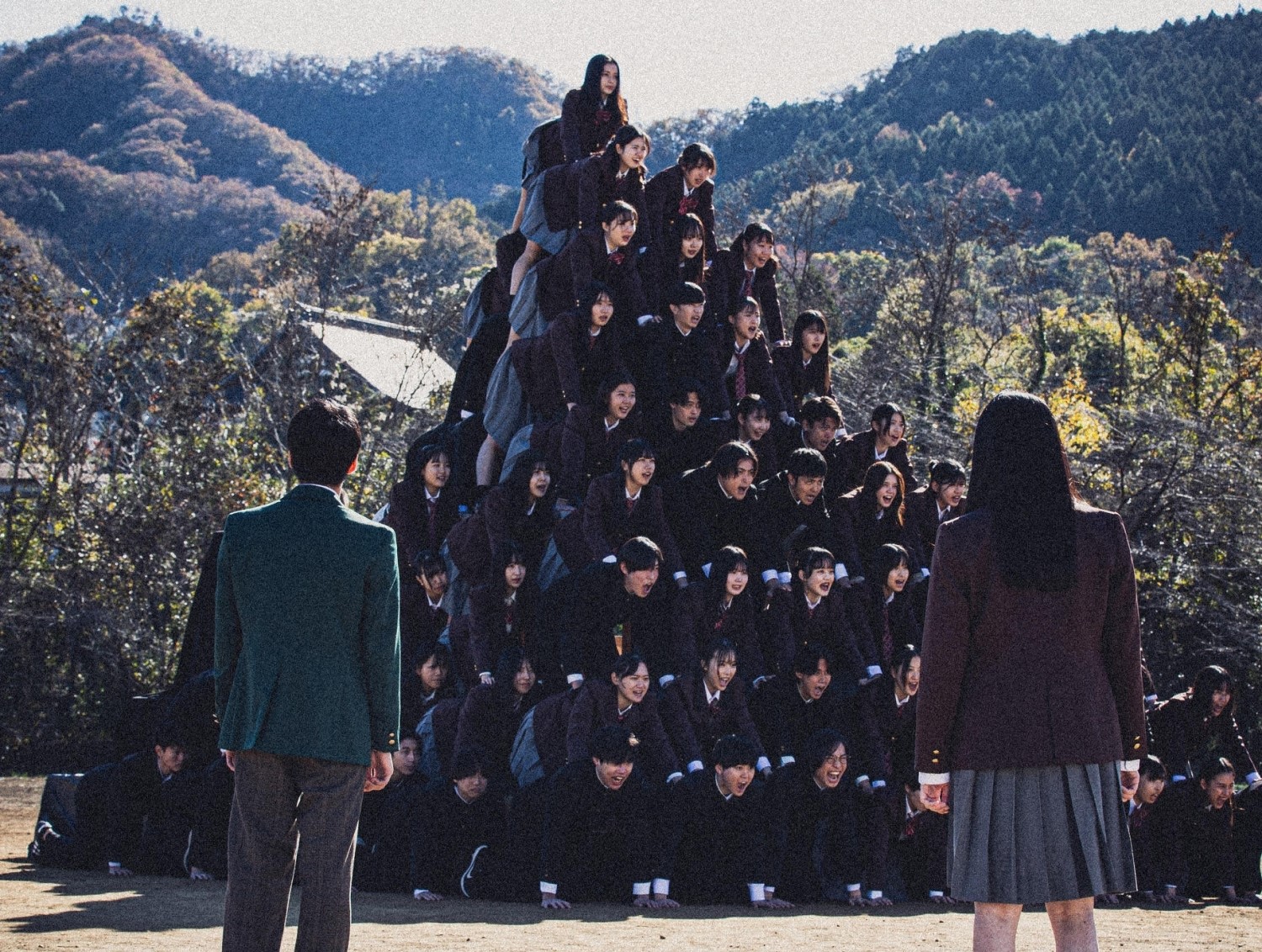
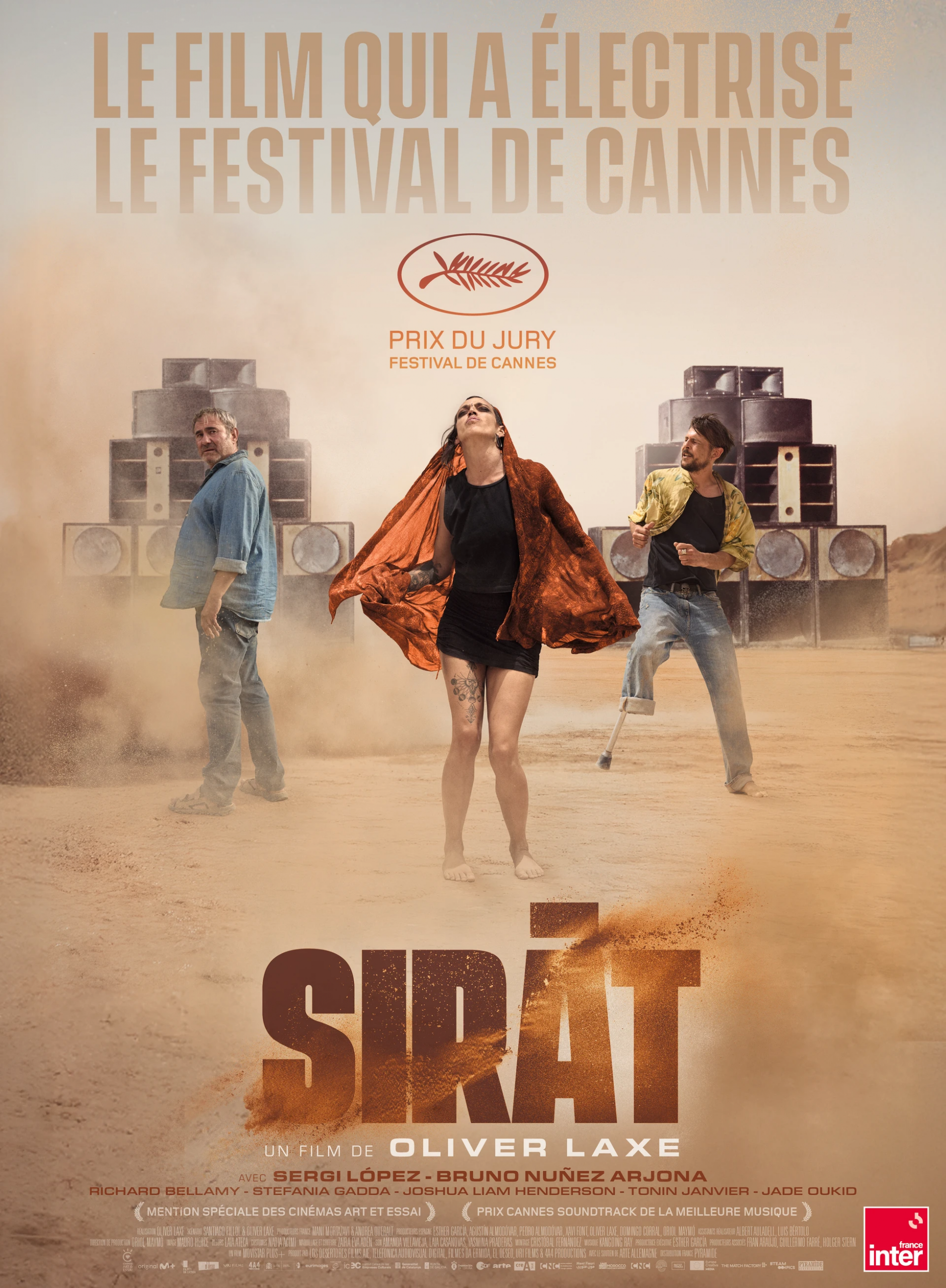
“Sirât” (Spain/France) (4/5) (Gold Hugo Award Winner, Best Film, International Competition); Letterboxd (4/5), Imdb.com (8/10), TMDB.com (8/10), Imdb.com critics review; Web site, Trailer; #BrentMarchant #Sirât #ChiFilmFest #Morocco #missingdaughter #rave #desert #war #OliverLaxe #GoldHugoAwardwinner
No matter how desperate circumstances may become in our lives, they can always get worse, presenting us with an exacting test of our capabilities and will to survive. And, in doing so, the experience provides us with an opportunity to look at how unimaginably resilient we can be, no matter how seemingly impossible the odds may appear stacked against us. Those are the conditions put to a worried father, Luis (Sergi López), and his young son, Esteban (Bruno Núñez Arjona), as they earnestly go in search of their missing daughter/sister at a rave in Morocco. Unfortunately, there’s no sign of her, but a band of ravers (Stefania Gadda, Joshua Liam Henderson, Richard “Bigui” Bellamy, Tonin Janvier, Jade Oukid) suggests that they consider looking for her at another upcoming event soon to be held in Morocco’s southern desert near the Mauritanian border. However, as the festivities play out, troops arrive on the scene, ordering the evacuation of all Europeans in the wake of the outbreak of war. But, as the attendees are rounded up for removal, the five rebel ravers flee, with Luis and Esteban in tow, with the intents of traveling to the next event and continuing the search for the missing woman. The unlikely traveling companions thus embark with a sense of adventure and hope, unaware of the many perils that await them on the road against a backdrop wherein World War III has apparently begun. The challenges soon descend upon the travelers thick and furious, significantly impacting their journey, not to mention their ability to stay alive. Can they rise to the occasion? That’s what writer-director Oliver Laxe explores in this edgy road trip saga, punctuated by an array of shockingly unexpected developments, plot devices that successfully take big chances as this intensely engrossing story unfolds. The narrative is backed by a positively mesmerizing soundtrack, one of the best I’ve seen come out of a movie in ages, as well as stunning desert cinematography and fine performances by the entire ensemble. Admittedly, a few sequences could be better explained, and the back story across the board could have been better developed. However, when faced with conditions like these, it may be easy for the characters to disregard them in the face of more pressing concerns, and that could be the intent underlying their exclusion here. Either way, the lack of elaboration in these areas doesn’t significantly detract from the aspects that truly work best in this superb release, one honored with four awards at the 2025 Cannes Film Festival, including the prestigious Jury Prize, as well as a nomination for the Palme d’Or, the event’s highest honor. Look for this one to potentially garner more traction as movie awards season plays out, recognition that the picture truly deserves.
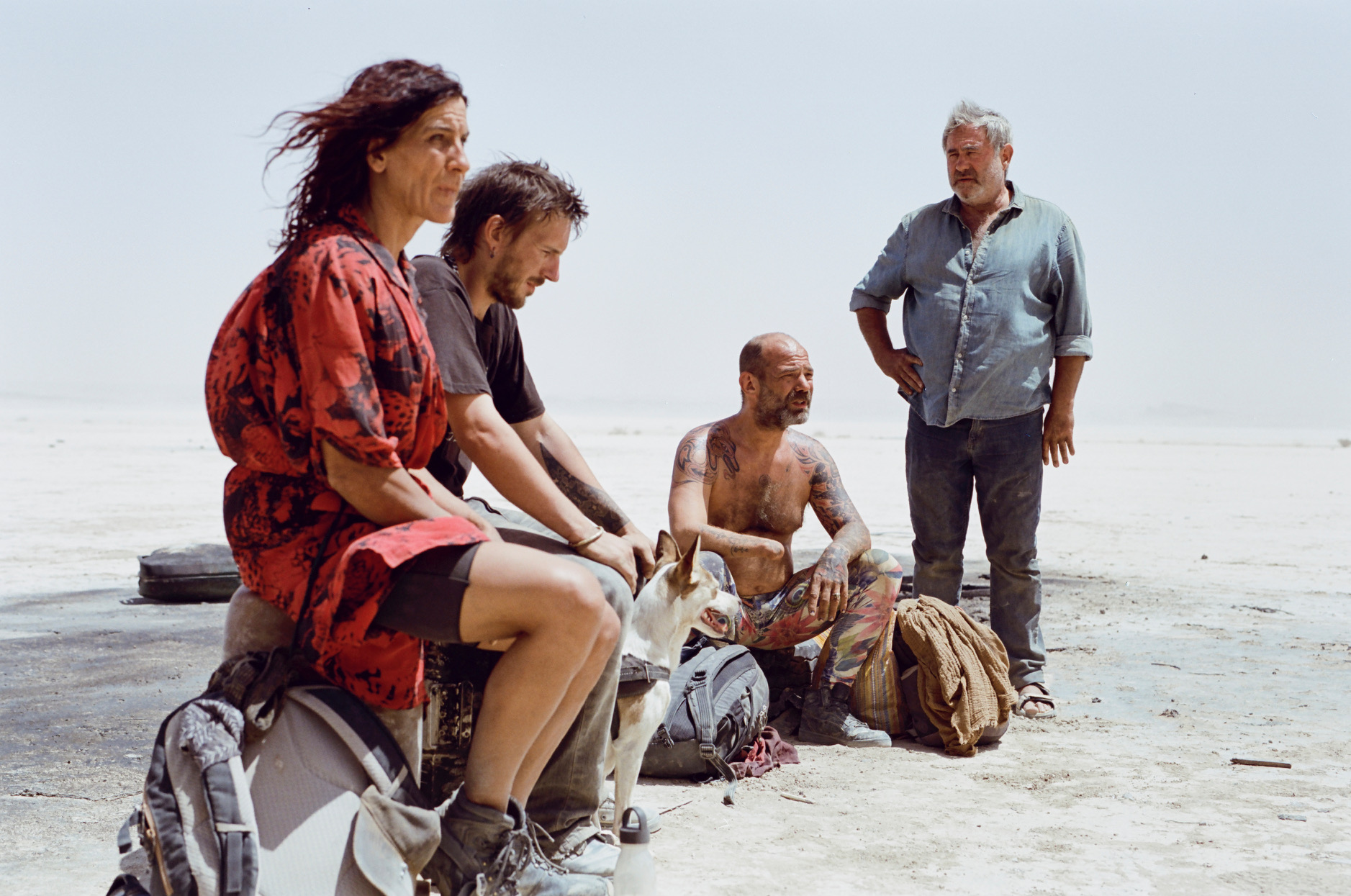
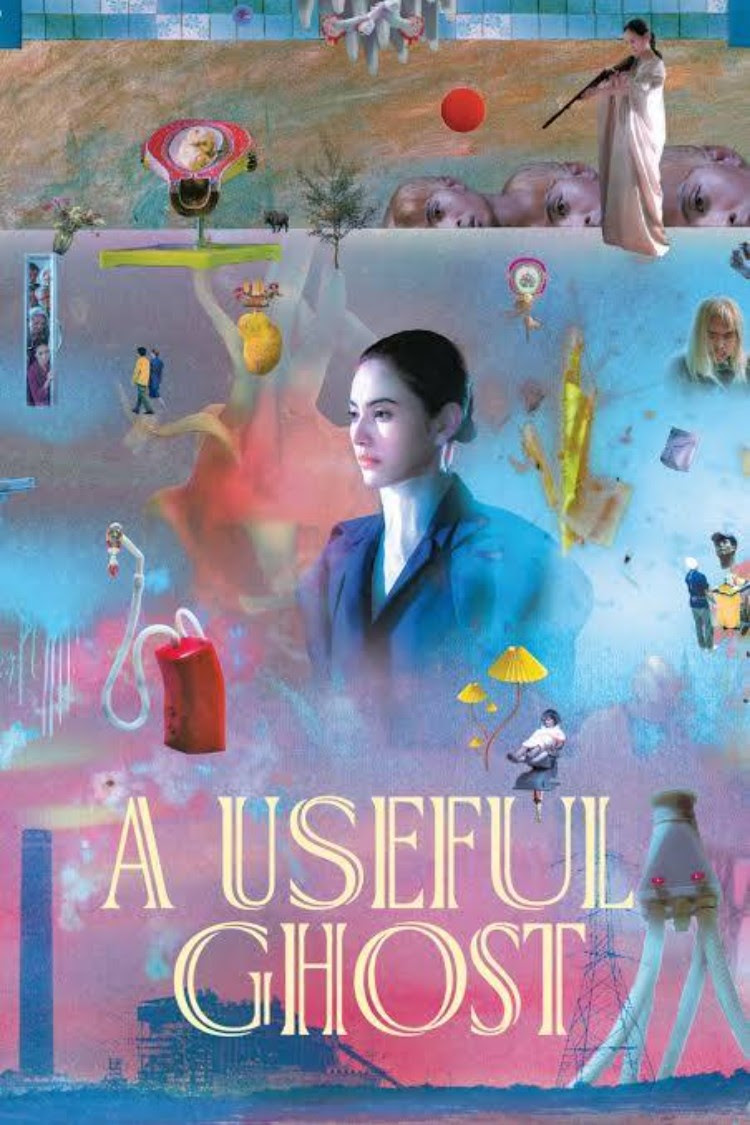
“A Useful Ghost” (“Pee Chai Dai Ka”) (Thailand/France/Germany/Singapore) (4/5) (Special Mention Award Winner, OutLook Competition); Letterboxd (4/5), Imdb.com (8/10), TMDB.com (8/10), Imdb.com critics review; Web site, Trailer; #BrentMarchant #AUsefulGhost #ChiFilmFest #Thailand #ghosts #dreams #vacuumcleaner #respiratoryillness #dust #acceptance #LGBTQ #remembrance #electroshocktherapy #Buddhistmonk
Many of us have probably heard of the notion of “the ghost in the machine.” And now director Ratchapoom Boonbunchachoke’s debut feature brings entirely new meaning to that concept – literally ‒ in this impressive, offbeat comedy-drama-fantasy. The film tells the unusual story of March (Wisarut Himmarat), the widowed young son of Suman (Apasiri Nitibhon), the cold, stone-faced, inflexible owner of a vacuum cleaner factory and an embittered widow herself. One might think that their mutual circumstances give them something in common, but such is not the case. Suman never cared much for her late daughter-in-law, Nat (Davika Hoorne), and doesn’t exactly miss her now that she’s gone. But those feelings become exacerbated when Nat’s ghost reincarnates, coming back to life by inhabiting the machinery of one of her factory’s vacuum cleaners, a development that Suman finds wholly unnatural and unacceptable but that March welcomes when he’s reunited with his departed beloved. Nat’s reason for returning is to care for her husband, who appears to be suffering symptoms of the same respiratory illness that killed her, one attributable to excess exposure to dust, a growing problem affecting the public in general, including the workers at Suman’s plant. In fact, this burgeoning environmental and public health issue has already killed one employee and soon leads to the factory’s shutdown by government officials, a development for which Suman blames Nat’s reincarnated spirit by drawing attention to the condition. And, in turn, much to March’s chagrin, Suman and her family do everything they can to get rid of the pesky ghost so they can reopen the plant and restore their severely diminished income stream. But can Nat be eliminated that easily? What’s more, this incident turns out to be just the beginning of an all-out war on ghosts by a public frustrated by their return (both in mechanical and human form) and the nagging, unwanted consequences that, for various reasons, generally accompany their unforeseen reincarnation. The question thus becomes, who will triumph in such an interdimensional war of wills, especially when it becomes apparent that ghosts can actually prove to be useful and not universally menacing? If the foregoing sounds like a highly unusual premise for a movie, you’d be right, but the filmmaker skillfully pulls off this quirky project in truly fine fashion, one replete with hilarious deadpan humor, heartfelt moments of touching revelation, creative special effects, and an array of symbolic references that metaphorically cover topics ranging from public health matters to alternate lifestyle acceptance to incidents of karma and forgiveness, among others. To be sure, this release packs a lot of material into its 2:10:00 runtime, and, admittedly, the narrative occasionally verges on getting out of control with too many ideas and recurring material whose impact can run a little thin at times. In general, though, most everything the director strives to say manages to come through, providing viewers with much to ponder in the picture’s wake. Because of that, this is the sort of offering that probably requires several screenings to appreciate its full impact, but that’s fine considering how much there is to like here. If nothing else, “A Useful Ghost” is certainly a memorable cinematic experience, an impression very much in line with one of the picture’s primary themes – the role that remembrance plays in sustaining the existence of departed loved ones in our hearts, minds and reality. Indeed, as has often been contended, those who have left us truly do live on as long as we remember them – whether in the shell of a vacuum cleaner or otherwise.
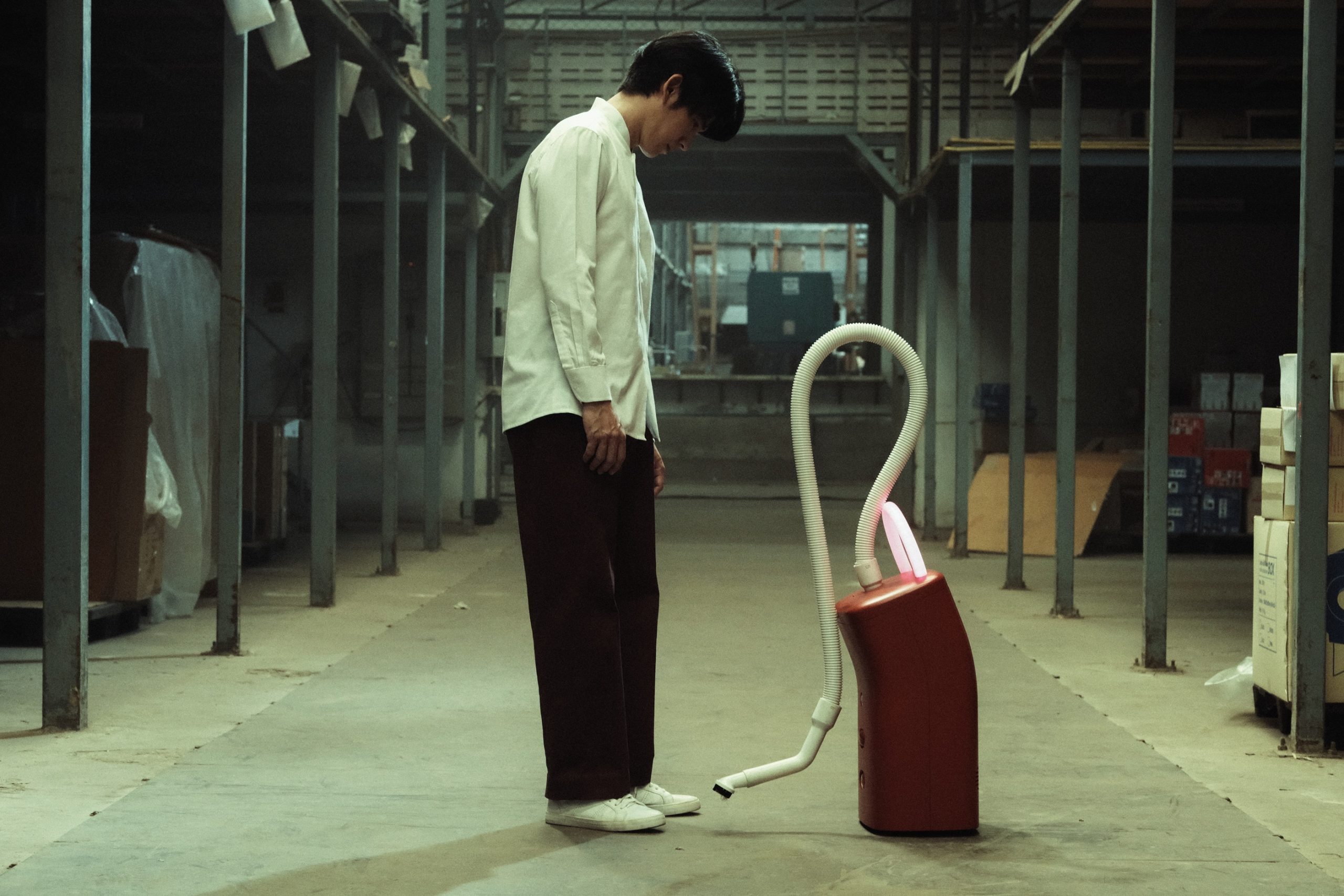
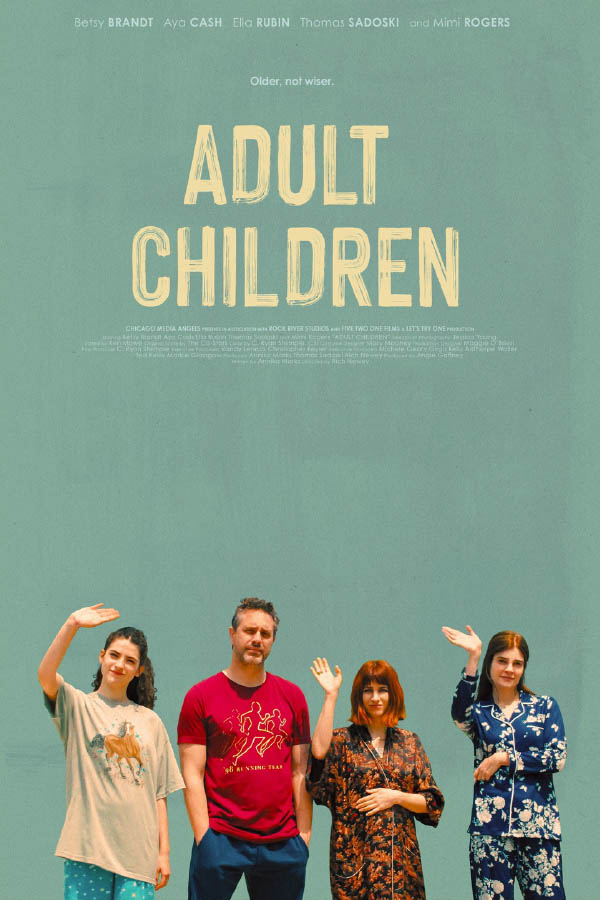
“Adult Children” (USA) (3/5); Letterboxd (3.5/5), Imdb.com (7/10), TMDB.com (7/10), Imdb.com critics review; Web site, Trailer; #BrentMarchant #AdultChildren #ChiFilmFest #USA #siblings #substanceabusetreatment #Chicago #caregiver
We’d all like to believe that “with age comes wisdom.” But is that necessarily true? In the case of a suburban Chicago family, the household’s four grown children demonstrate that getting older doesn’t automatically equate to getting smarter or more mature. Nevertheless, as fate would have it, life unexpectedly hands them an opportunity to test out that notion in this modestly entertaining comedy-drama from director Rich Newey. When the family’s only son, Josh (Thomas Sadoski), falls prey to his ongoing battle with substance abuse (mostly, though not exclusively, prescription painkillers), he searches for (but is unable to secure) rehab treatment for his condition, something that has obviously come up a number of times before. So, while awaiting a safe place to get clean, he needs a sanctuary where he can stay in the interim to prevent falling off the wagon again. He hopes to temporarily move in with his mother, Mimi (Mimi Rogers), but she and Josh’s stepfather have longstanding plans to go on vacation to Paris, a trip they don’t want to cancel. However, since they’re also uncomfortable leaving Josh to fend for himself at a time like this, they need to devise an alternate plan to provide for his care. Mimi consequently decides to ask Josh’s three sisters to babysit him in her home while she’s away. Knowing Josh’s history, his two eldest sisters, Lisa (Betsy Brandt) and Dahlia (Aya Cash), aren’t especially thrilled with the idea. But their youngest sibling, 17-year-old college-bound half-sister Morgan (Ella Rubin), looks forward to this impromptu reunion. She sees it as a chance to get to know everyone better, an opportunity that she hopes will enable her to tap into the alleged wisdom and life experience that she believes comes with age. With a premise like that, one might naturally assume such a setup would be rife with comedic possibilities, potential that’s generally borne out well, particularly when the sisters’ own previously hidden challenges emerge. The result is a gentle, heartwarming domestic comedy with a fine ensemble left to deal with a variety of twists and turns, along with an array of realistic, bona fide grown-up issues. However, despite the chuckles the film evokes, I would have preferred it had it included more and bigger laughs than what it actually serves up. In many respects, this release reminds me of a lite, somewhat watered down version of another Chicago-based domestic comedy, “All Happy Families” (2023). But, unlike that offering, this picture doesn’t generate the same degree of laughs as its predecessor. Had this one turned up the outrageousness factor more and taken itself a little less seriously, it might have risen to the occasion better. It also might have benefitted from playing up some of Mimi’s dubious antics as a former wild child who doesn’t appear to have grown up as much as she would like to lead everybody to believe that she has. But, those considerations aside, “Adult Children” is still a fun watch, especially when it comes to seeing how we should never assume that we’re all as grown up as we’d like to think we are.
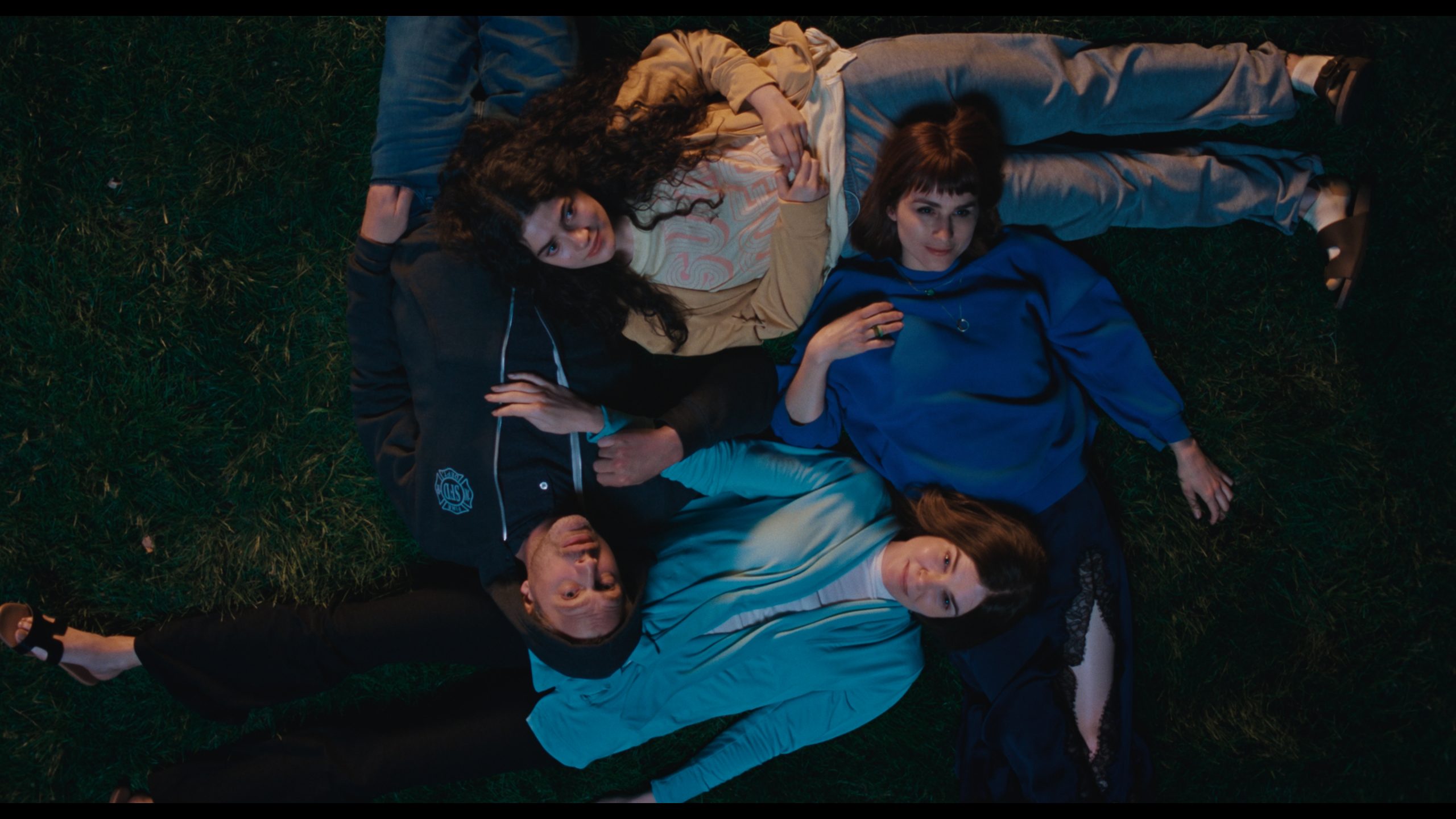
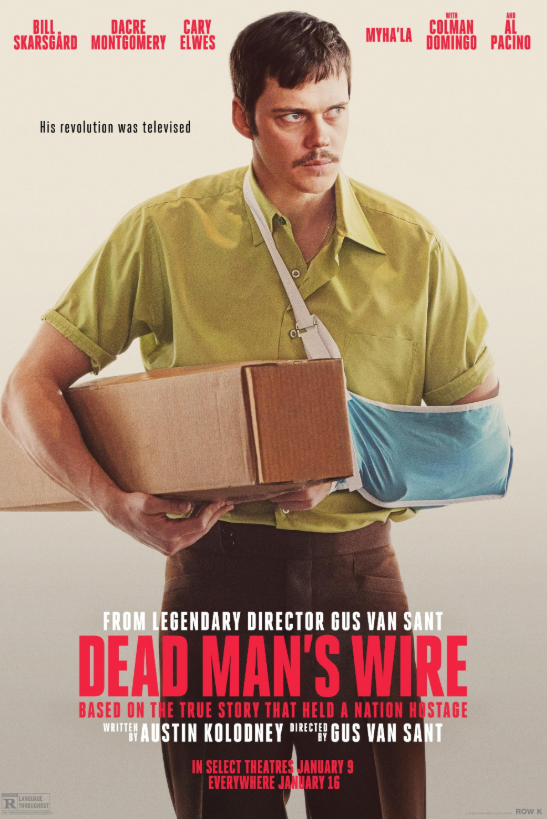
“Dead Man’s Wire” (USA) (3/5); Letterboxd (3.5/5), Imdb.com (7/10), TMDB.com (7/10), Imdb.com critics review; Web site, Trailer; #BrentMarchant #DeadMansWire #ChiFilmFest #GusVanSant #BillSkarsgard #ColmanDomingo #AlPacino #TonyKiritsis #Indianapolis #mediacircus #shotgunwire
At a time when many of us may feel like we’re being systematically shafted by big business and powerful financial institutions, it’s natural that some of us might believe we’re justified in seeking retribution against them for their deceitful actions. Such was also the case in February 1977, when an aggrieved borrower sought potentially deadly vengeance against the president of an Indianapolis mortgage company, as seen in this fact-based comedy-drama-thriller from director Gus Van Sant. When Tony Kiritsis (Bill Skarsgård), a mentally challenged borrower, feels financially betrayed by a lender he implicitly trusted, he decides to take action to get back at the loan company’s owner, M.L. Hall (Al Pacino). However, on the day he’s scheduled to meet with Mr. Hall, Kiritsis learns that he is on a last-minute midwinter “business trip” to Florida, thereby thwarting his plans for revenge. So, with his principal intention thus foiled, the angry customer resorts to his fallback plan, taking the owner’s son, Richard (Dacre Montgomery), as hostage. And, to show the world he means business, the perpetrator fits his captive with a taut wire around his neck that is connected to a shotgun set to fire with the slightest unplanned motion. However, despite his seemingly efficient planning, the determined but somewhat bumbling culprit ends up unleashing what turns out to be a cross between a heinous criminal event and a comical media circus that mesmerizes the city for days. Law enforcement officials, like Kiritsis’s acquaintance, Det. Michael Grable (Cary Elwes), are frustrated by developments at nearly every turn, while many in the public at large sympathize with the captor’s seemingly justifiable motives. And, in the process, the event explodes to draw in a variety of ancillary storylines, such as the determined campaign of a neophyte television reporter (Myha’la) aggressively seeking to lock down coverage of her first breakthrough story and the improvised negotiation efforts of a popular local radio host (Colman Domingo) trusted by the event’s ringmaster who is unwittingly drawn into the fray. The result is an accurate re-enactment of a potentially dangerous event that ultimately plays out like a classic example of pure Americana kitsch, a film that calls to mind elements found in such releases as “Dog Day Afternoon” (1975) and “Breaking” (2022). However, despite the picture’s commendable efforts at re-creating a scenario that has largely slipped from public memory over the years, this release feels as though it tries a little too hard at times, as if it’s wearing its penchant for period piece authenticity on its sleeve. In addition, portions of the narrative drag somewhat in the middle, coming across like padding to fill out the easily trimmed 1:45:00 runtime. Those criticisms aside, however, “Dead Man’s Wire” nevertheless features an excellent production design, along with fine performances by Domingo, Pacino, and, especially, Skarsgård. This modestly entertaining offering generally holds viewer interest reasonably well, providing a modicum of gripping drama and more than a few well-earned chuckles along the way. If nothing else, however, the story should serve as a warning to those who would try to pull one over on an increasingly unsettled, unpredictable, trigger-happy public, one whose imbedded lesson strongly cautions that the cost of calculated financial scheming could easily overshadow whatever profits might come from such artful material deception.
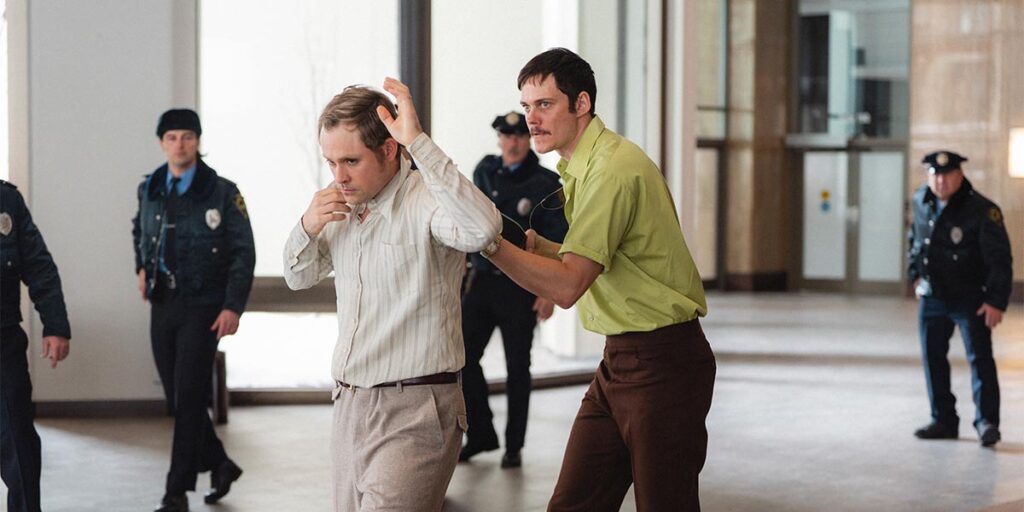

“Oca” (Mexico/Argentina) (3/5) (Silver Hugo Award Winner, Best Director, New Directors Competition) (US Premiere); Letterboxd (3.5/5), Imdb.com (7/10), TMDB.com (7/10), Imdb.com critics review; Web site, Trailer; #BrentMarchant #Oca #ChiFilmFest #Mexico #convent #destiny #connection #dreams #premonition #Godsplan #spiritualjiourney #boardgame
Life, as we all know, is full of twists and turns, some that advance us and others that set us back, with others still that facilitate both more or less simultaneously. Making sense of that can be maddening, too, especially for those looking for patterns in the chaos. Issues like this can be particularly meaningful (or mind boggling) for those with a spiritual bent, who try to understand these developments in terms of “God’s plan.” In fact, on an everyday secular level, those matters have even become enshrined in a popular board game in Spanish-speaking countries called “Oca.” And the principles behind this pastime, in turn, provide the basis for the debut feature from writer-director Karla Badillo, an introspective look at understanding how life unfolds when viewed from this perspective. To describe the film in greater detail would reveal too much, but, in a nutshell, it follows the remarkable odyssey of a prescient Mexican nun, Sister Rafaela (Natalia Solián), whose dream premonitions often come true, leading her to believe that she may have a direct line to the mind of God. But does she? And, if so, can she draw upon such wisdom to help save the failing convent to which she belongs? Under orders from her Mother Superior, she’s sent to seek the counsel of the newly appointed Archbishop of her diocese, who has recently arrived and moved into quarters different from the traditional residence of someone in his position, one that’s also somewhat challenging to reach. As she embarks on this journey, she experiences a series of both setbacks and unexpected good fortune involving others caught up in three separate scenarios that all eventually become interconnected with one another, again for better or worse, once more confirming the rationale behind the Oca principles. In fact, to further evidence these ideas, the unfolding narrative proceeds to validate the merits of a fittingly complementary observation from St. Theresa of Jesus displayed before the opening credits that maintains “He who wants to get everything must give up everything.” This quote thus serves as an embodiment of Oca logic and one that might, by extension, be looked upon as another expression of God’s plan. These ideas are cleverly and poignantly brought to life through the picture’s smartly written script and engaging story, even if it’s a little sluggishly paced in getting the ball rolling. However, as the film plays out and its various intricate connections are revealed, both in backward and forward motion, viewers are treated to an enjoyable and insightful tale that just might help shed some valuable light on the reasons why life emerges as it does, quite a nifty little trick for a parable inspired by a board game. Indeed, if more of us were to treat our life experience more like that, we just might find it considerably less burdensome and a lot more fun in the end.

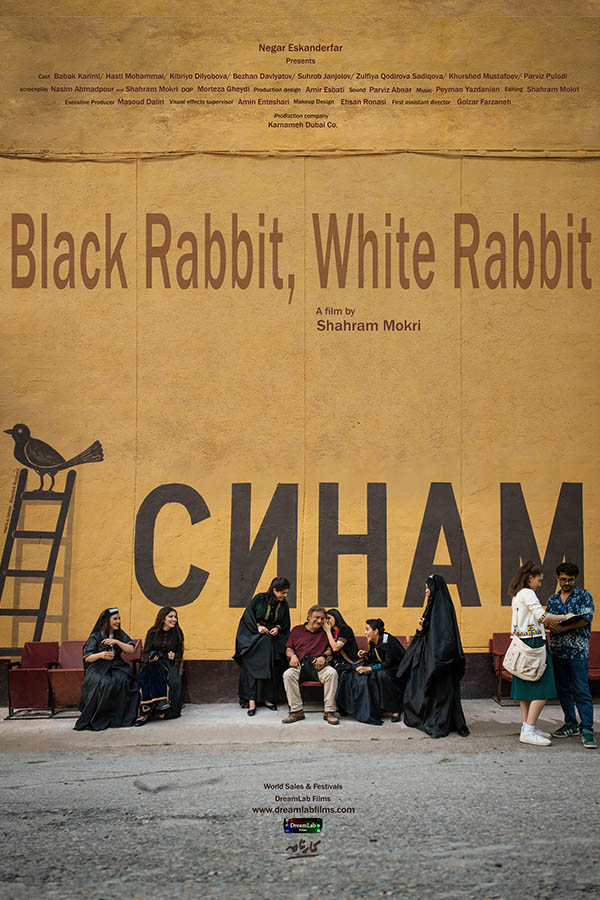
“Black Rabbit, White Rabbit” (Tajikistan/UAE) (3/5) (International Competition) (North American Premiere); Letterboxd (3/5), Imdb.com (6/10), TMDB.com (6/10), Imdb.com critics review; Web site, Trailer; #BrentMarchant #BlackRabbitWhiteRabbit #ChiFilmFest #Tajikistan #UAE #ShahramMokri #whatgoesaroundcomesaround #talkingobjects
I’m all in for inventiveness in filmmaking, especially in days like these, where it seems that endless sequels, reboots and franchise offerings have come to dominate the domestic movie industry. However, at the same time, that laudable sense of innovation needs to work, too, and, in the case of this latest feature from writer-director Shahram Mokri, that’s true but only to a certain extent. In what is undoubtedly one of the most unusual films I have seen in some time, the filmmaker plays with the concept of storytelling, presenting a whimsical tale in which a domestic drama/thriller plays out amidst the efforts of a movie production company to make a picture of that same story, with reality and fantasy curiously overlapping and intertwining. That story involves three primary story threads that become interconnected as well, including one in which a woman severely injured in a mysterious car accident (Hasti Mohammai) has developed the ability to affect the performance of physical objects; one involving a movie prop master (Babak Karimi) who struggles with issues related to what he believes is a cursed stage revolver; and one in which an eager casting assistant (Kibriyo Dilyobova) desperately seeks an opportunity to make an on-screen appearance, despite strong objections from her boss/mother and an apparent lack of any appreciable talent of her own. These scenarios are further “enhanced” by the inclusion of surreal elements, such as the periodic appearance of human-sized rabbits that symbolically represent the characters and physical objects that appear to have the ability to move and silently communicate with one another. And, collectively, these qualities combine to deal with various narrative themes, most notably the notion of “what goes around comes around.” Admittedly, it’s all very intriguing for about an hour or so, but then the director seems to lose control of the room, allowing his considerable imagination to take over in ways that make the picture difficult to follow, a problem exacerbated by rapid-fire subtitles that barely give viewers enough time to read them. To a great degree, this is all made worse by the film’s needlessly excessive length at 2:19:00, a runtime that could have (and should have) been easily scaled back and simplified for greater effect. There are also some unusual filming techniques employed here, such as protracted continuous takes, which don’t add much and that are employed inconsistently. Indeed, when a filmmaker has a wealth of creativity to draw from, it may be difficult for the director to rein himself in, as is the case here, which is regrettable, given that this tendency can undermine a project with real potential, again, as is the case here. “Black Rabbit, White Rabbit” is certainly to be commended for being an original and ambitious effort, but the finished product needs work to bring it down to a more manageable – and more coherent – level.
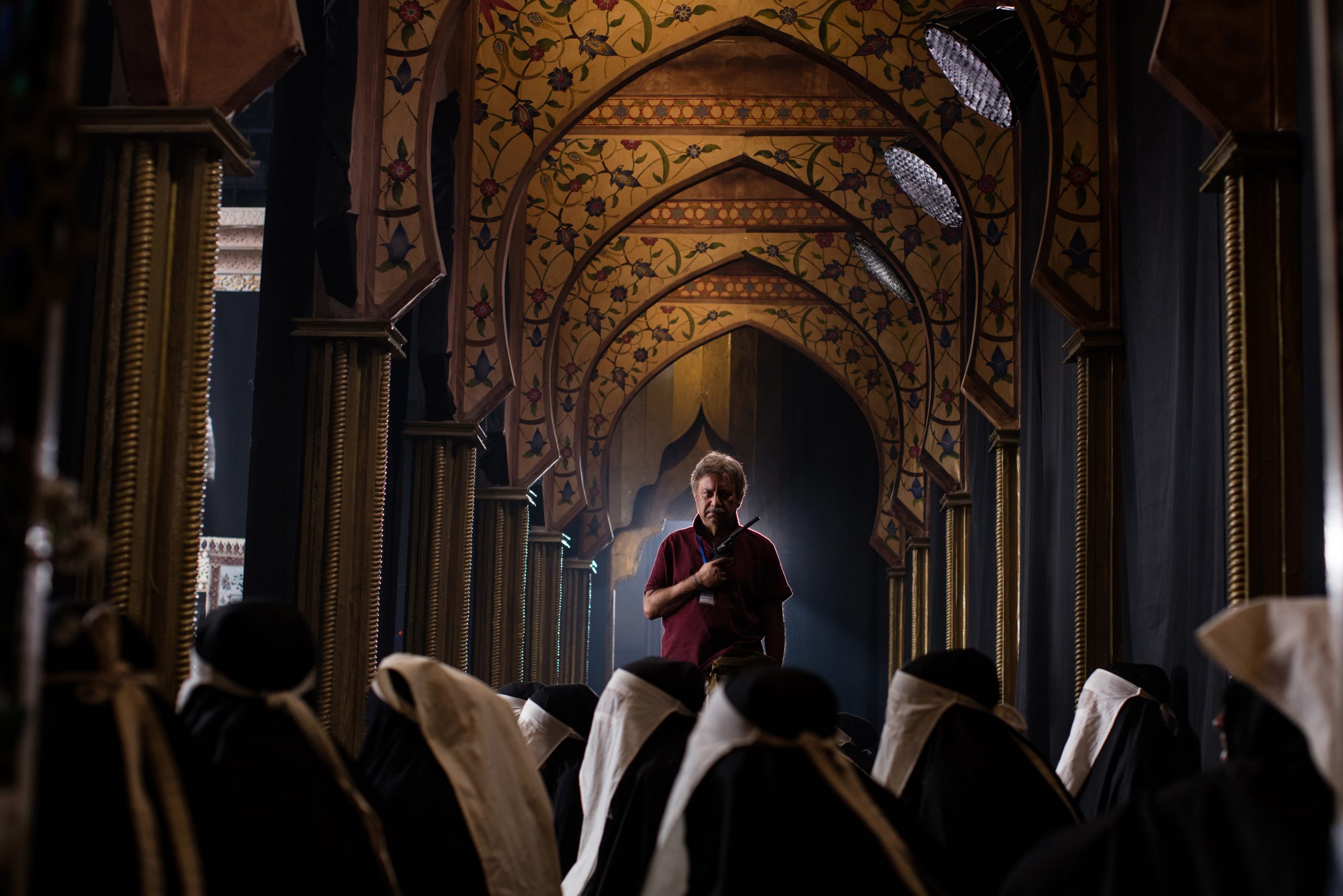
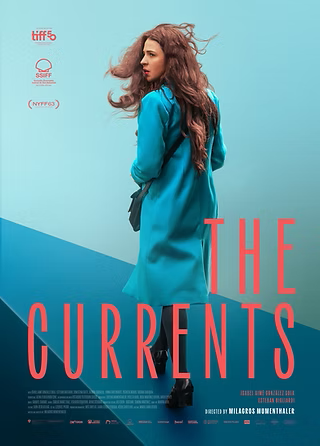
“The Currents” (“Las corrientes”) (Argentina/Switzerland) (3/5) (International Competition); Letterboxd (3/5), Imdb.com (6/10), TMDB.com (6/10), Imdb.com critics review; Web site, Trailer; #BrentMarchant #TheCurrents #ChiFilmFest #Switzerland #Argentina #Geneva #BuenosAires #stylist #trauma
No matter how we may try to outrun the trauma and pain of our past without adequately addressing these issues, we’re unlikely to escape them if we follow such a course. They will undoubtedly catch up with us and force us to confront them. But how do we do that? That’s the task put to Lina (Isabel Aimé González-Sola), a successful, high-profile fashion stylist from Buenos Aires who’s being hauntingly chased by ghosts who simply won’t leave her in peace. However, the exact nature of those shadowy psychological specters is hinted at but never fully or clearly defined, a tactic that writer-director Milagros Mumenthaler likely draws upon in characterizing the vague and unsettling nature of the feelings that her protagonist is experiencing. We thus witness Lina behaving enigmatically, engaging in spontaneous inexplicable acts that often place her and others in peril and bewilderment. Interestingly, this aberrant behavior begins while on a trip to Geneva, where she’s awarded a prestigious prize, an event that should mark an important milestone in her career. But, upon returning from Switzerland, the strange urges and emotions that arise overseas follow her home, causing concern for others, including her loving but puzzled husband (Esteban Bigliardi), her adoring but confused young daughter (Emma Fayo Duarte), and various friends, co-workers and extended family members. So what’s happening with her? The subtle but sometimes-frustrating storytelling approach employed here is key, though it may at times be off-putting to viewers (myself included) who are earnestly trying to understand what Lina is going through. But, then, perhaps that’s the very intent the filmmaker is going for, putting mystified audience members squarely in the lead’s shoes to show them what life is truly like for her. It’s obvious that Lina’s on some kind of quest to find inner contentment, an objective poetically depicted through several gorgeously filmed montages fittingly backed by the lyrical strains of “Venus, the Bringer of Peace” from Gustav Holst’s “The Planets.” However, as the picture unfolds, this narrative approach begins to wear a little thin, coming across more like a series of disjointed random acts than a cohesive story trajectory, leaving viewers wondering where the film is headed and whether Lina’s dilemma will ever come close to some form of resolution. As the film’s title implies, she truly feels adrift in the currents of life, a sensation that she finds can be both troubling and liberating yet always innately unpredictable (hence the inherent uncertainty in the flow of the film). To its credit, this offering’s stunning cinematography (especially in its seemingly underplayed portrayals of potentially shocking plot developments) and superb lead performance make for a genuinely mesmerizing watch. But, even with those fine attributes, I still kept hoping for something a little less atmospheric and a bit more elucidated. Ultimately, both viewers – and Lina – deserve more.
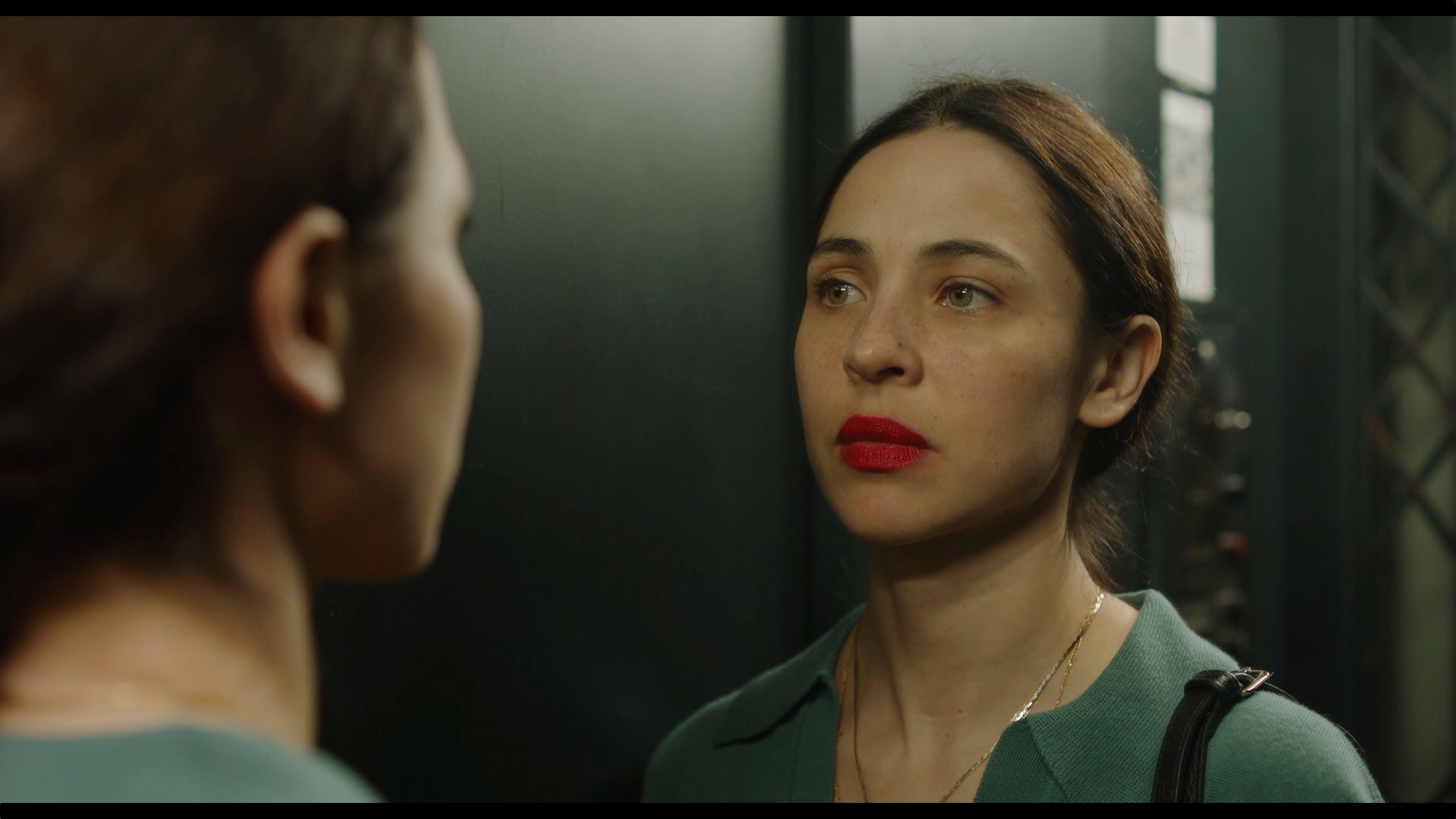
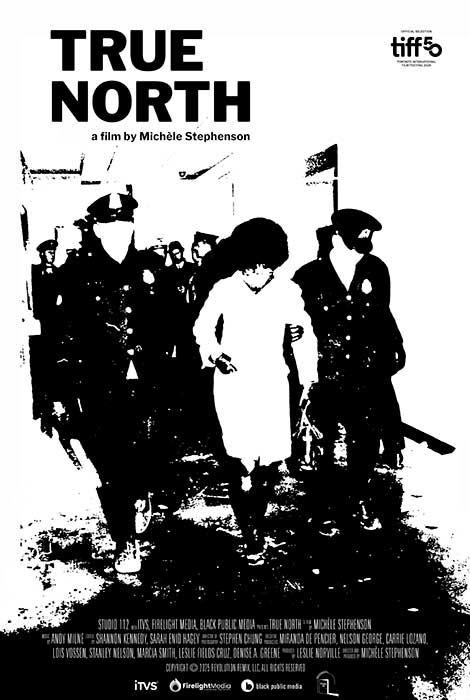
“True North” (Canada/USA) (3/5) (Documentary Competition) (US Premiere); Letterboxd (3/5), Imdb.com (6/10), TMDB.com (6/10), Imdb.com critics review; Web site, Trailer; #BrentMarchant #TrueNorth #ChiFilmFest #Canada #civilrightsprotests #Montreal #racism #SirGeorgeWilliamsCollege #BrendaDash #RosieDouglas #Halifax
When one thinks about Canada, images of a country known for its open-minded, tolerant, polite people and culture usually come to mind. But, when considering the nation’s history, one in which it often served as a way station along slave trading routes and a refuge for escaped slaves from the US, that has not always been the case. In fact, with some significant exceptions aside, as recently as the 1960s, many parts of Canada weren’t as readily accepting as they are today, a carryover from the days when it was more closely tied to its conservative English cultural roots and legal traditions, as well as its role in human trafficking. Racism toward Canadian Blacks may not have been as blatantly obvious as in the American South, for example, but it was insidious in many quarters, camouflaged by practices hidden behind largely anonymous personal and institutional façades. But, as the US civil rights movement began to heat up – particularly in the wake of the Dr. Martin Luther King Jr. assassination – the influence of that activism spread northward, with Canadian Blacks (especially those of Caribbean origin) beginning to fight back in earnest. And that’s what this documentary from filmmaker Michèle Stephenson seeks to chronicle, exposing the country’s past racial issues, particularly in such locations as Montreal and Halifax. Through a wealth of archive footage and recent interviews with activists who lived through the surprisingly turbulent turmoil that erupted when justice was being railroaded, Canada’s attempts at clandestinely suppressing equality and civil rights against minorities are brought to light. Particular emphasis is placed on the work of leaders like Rosie Douglas and Brenda Dash, as well as the impact of events like the Montreal Black Writers Conference and a watershed uprising at the Sir George Williams College Medical School whose intensity rivaled that of many protests in cities across the US. As revelatory as these initiatives and incidents were, however, their timelines, significance and impact are not always presented as clearly as they might have been in this film, primarily due to a narrative that’s somewhat disjointed and in need of better organization. While it’s indeed gratifying to see this material finally surfacing, its effect nevertheless could have been greater with a more coherent approach in telling its story. The courageous advocates who selflessly toiled to bring about the results that Canadians of all backgrounds now enjoy have finally received their due with this offering. It’s just unfortunate that the cinematic result isn’t quite on par with the magnitude of the accomplishments that they so valiantly helped to achieve.
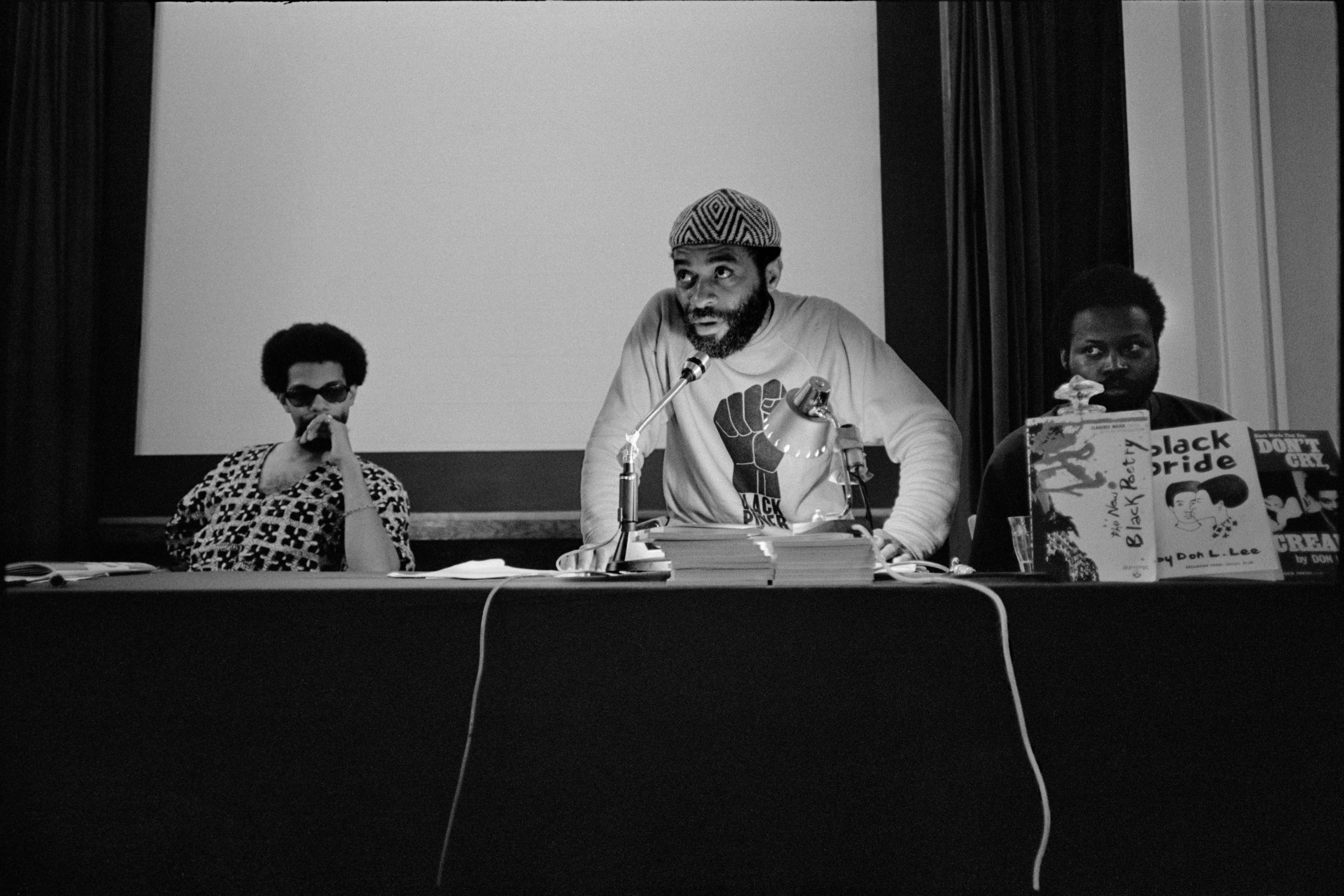
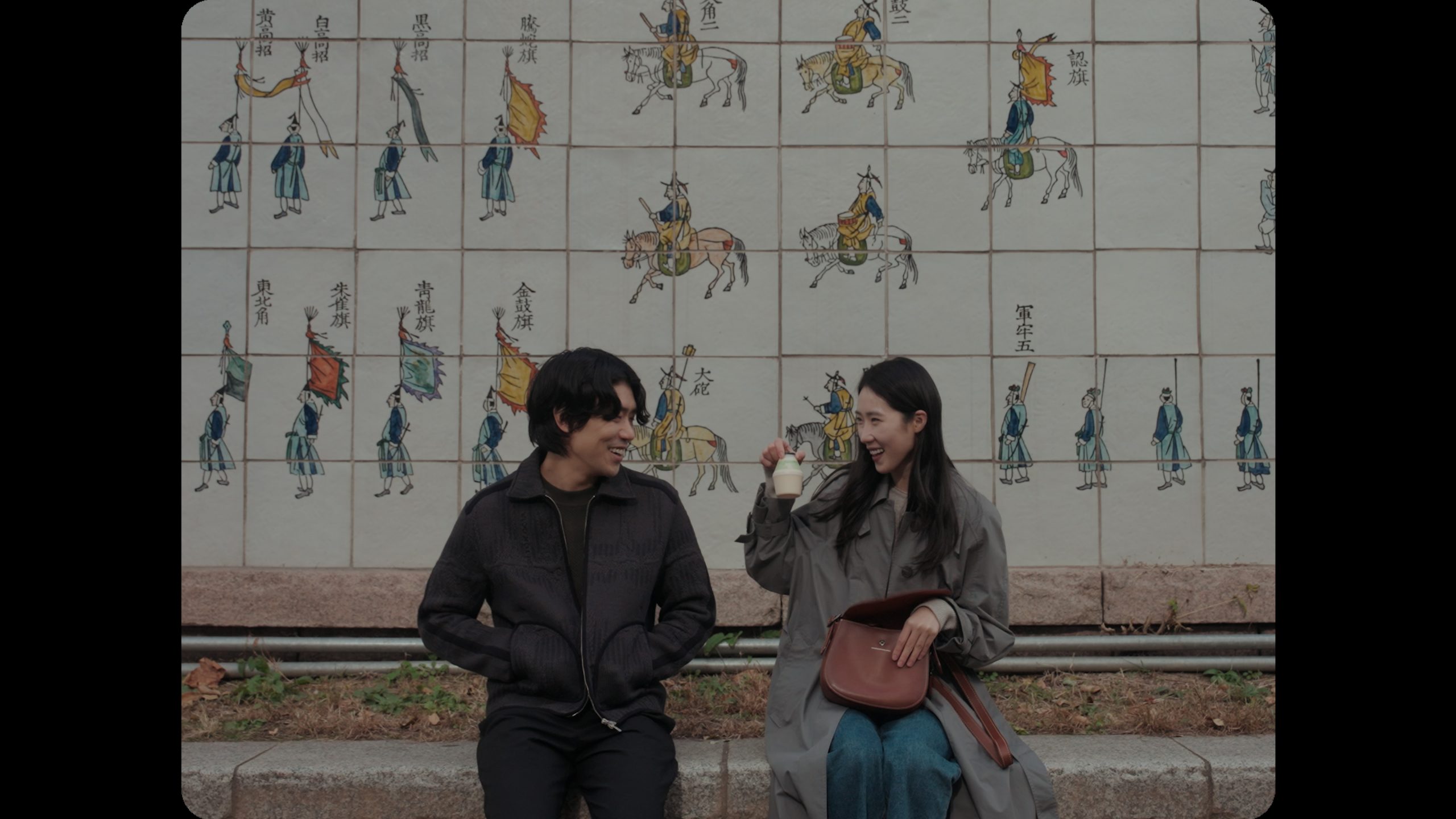
“Before the Call” (“Bureum Jeone”) (South Korea) (2/5); Letterboxd (2.5/5), Imdb.com (5/10), TMDB.com (5/10), Imdb.com critics review; Web site; #BrentMarchant #BeforetheCall #ChiFilmFest #SouthKorea #militaryservice
Fulfilling one’s military obligations can be a daunting prospect, especially in times of open conflict. It places great strain on those called upon to serve, weighing heavily on their minds both personally and in terms of complying with their civic duties. But, even with full awareness of those considerations, that knowledge may not make facing the obligation any easier, a conundrum addressed in writer-director James Choi’s “Before the Call” (“Bureum Jeone”). When Korean-American Jinwoo (Andy Koh) returns to his home in Seoul after a stay in the US, he’s faced with fulfilling his mandatory requirement for serving in the military. It comes at a time when tensions between the two Koreas have grown and the threat of wider global engagements has intensified. Needless to say, those conditions have given him pause for concern. But there’s more to his apprehension than just the possibility of going into battle. He’s unsure whether this is the right step for him personally. Jinwoo has apparently grown accustomed to living comfortably while stateside and seems wary of the demanding discipline about to be imposed on him, as becomes apparent when discussing the specifics of that adjustment with a friend (Seong-Guk Ha). And this concern, in turn, helps rekindle issues that have quietly but undeniably simmered in his relationship with his father (Gwang-Rok Oh), a former soldier who has apparently long harbored reservations about whether his son would be capable of living up to the demands of fulfilling his military obligations. Jinwoo is also conflicted about his feelings for leaving behind a potential romantic interest, Minji (So-Yi Kang), with whom he has just recently reconnected after his long absence while living abroad. As a consequence, he anxiously assesses if he’s up to what lies ahead, despite his desire to be a compliant citizen and to prove that he can measure up to his father’s expectations. And, to be sure, these impending adjustments are all truly noteworthy considerations. However, the film’s treatment of these issues could have been handled more effectively. Much of the narrative consists of a series of conversations between the protagonist and his familiars, and much of the content of those discussions is repetitive and circular. It doesn’t make for especially engaging cinema, particularly with all of the redundancies involved, even in light of the picture’s scant 61-minute runtime. The nature of the conflict that provides the backdrop for this story isn’t well developed, either, feeling as though the filmmaker is dancing around the subject, never really committing to a definitively delineated scenario. This is not to suggest that the film doesn’t broach important issues; it does. Unfortunately, it just doesn’t address them very well, and that’s regrettable, especially for anyone facing the call who might be looking to a picture like this to offer meaningful insights during what has to be a difficult time, one that’s likely to be as much of a conflict as the looming combat that’s lying in wait.
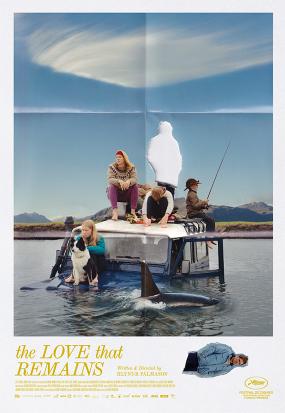
“The Love That Remains” (“Ástin sem eftir er”) (Iceland/Denmark/Sweden/France) (2/5) (International Competition); Letterboxd (2/5), Imdb.com (4/10), TMDB.com (4/10), Imdb.com critics review; Web site, Film Clip; #BrentMarchant #TheLoveThatRemains #ChiFilmFest #Iceland #artist #fisherman #divorcedcouple #HlynurPálmason
Divorce can have a very strange effect on a family, both for the separating partners and for anyone in their household, especially children. The rules of engagement are in flux, with some events feeling uncannily familiar and others being radically different. There may also be instances of unintended but undeniable backsliding, making circumstances messy, uncomfortable and confusing. Navigating the shifting sands of these conditions can thus be challenging, baffling and upsetting for everyone and in myriad ways. So, given these fluctuating parameters, how is everyone supposed to cope with these unfamiliar scenarios? That’s the turf that writer-director Hlynur Pálmason seeks to explore in his fourth – and perhaps most unusual – feature offering, a series of diverse vignettes that unfold over the course of a year after parents Anna (Saga Garðarsdóttir) and Magnús (Sverrir Gudnason) divorce and seek to build new lives for themselves and their three children. But are they as ready for this kind of change as they think they are? How will it impact their work lives (Anna as a would-be but long-unsuccessful artist and Magnús as an often-absent deep sea fisherman), their relationships with the kids and their interactions with one another, both emotionally and with regard to lingering and obviously conflicted physical temptations? However, in telling their story, the filmmaker frequently seems almost as perplexed as his characters, as evidenced by an uneven, meandering narrative that seldom results in resolution of the various scenarios that arise. This becomes especially apparent in a number of bizarre surreal sequences that seem almost always out of place and do more to bewilder the audience than provide any sort of meaningful clarity. In the meantime, the director struggles to cover these shortcomings by routinely falling back on the inclusion of an array of admittedly gorgeous but largely inexplicable nature photography segments that look like they’ve been culled from a “Visit Iceland” travelogue, along with numerous shots from Magnús’s working life that appear as though they’ve been excerpted from Chamber of Commerce industrial films. Whatever the filmmaker was going for here, though, it feels like he’s often reaching for something that he never quite grasps, making for a visually appealing but ultimately muddled watch for viewers. Pálmason is a genuinely gifted auteur, but, regrettably, this is not one of his better efforts. Invest your time in works like “A White, White Day” (“Hvítur, hvítur dagur”) (2019) or “Godland” (“Vanskabte Land”/“Volada Land”) (2022) instead.


“Rental Family” (Japan/USA) (2/5); Letterboxd (2/5), Imdb.com (4/10), TMDB.com (4/10), Imdb.com critics review; Web site, Trailer; #BrentMarchant #RentalFamily #ChiFilmFest #Japan #BrendanFraser #impersonator #outofworkactor #Hikari
Forging personal connections can be difficult enough these days, even in casual circumstances. But what happens when we require someone to play a vital role for a pressing need and no one is available to stand in? That’s when it may be time to place a call to Rental Family, a Tokyo-based company that provides individuals to step in and fill the missing link. It’s also a perfect opportunity to provide work for unemployed actors, giving them a chance to ply their trade and gain experience at broadening the range of their craft while helping out others in times of need. Such is the case for Phillip Vandarploeg (Brendan Fraser), a largely unsuccessful American actor who moved to Japan years ago to make a cheesy toothpaste commercial but has since found few opportunities to further his career. He initially has reservations about serving as a professional impersonator, but, once he gets the hang of it, he finds himself quite adept at it. However, the deeper he gets into his assignments – such as playing a surrogate father/husband to help an ambitious single mother (Shino Shinozaki) get her daughter (Shannon Gorman) into a prestigious school and impersonating an entertainment journalist to allegedly profile an aging actor (Akira Emoto) and help him relive his memories before he loses them permanently – the more involved he becomes in his clients’ lives, raising ethical questions that give him anguish but from which he has difficulty walking away. In many respects, “Rental Family” feels like a lightweight version of the excellent, recently released Austrian offering “Peacock”, one that aims for a crowd-pleasing vibe more than its substantively superior European counterpart. Unfortunately, though, this is where this picture comes up short. To carry out its narrative objectives, writer-director Hikari’s second feature outing is eminently predictable, interminably schmaltzy, manipulative and heavy-handed to a fault, qualities that grow ever more cringeworthy the further the story progresses. And, when the picture attempts to break out of this mold and become deliberately less obvious, it goes overboard, turning preposterous and lacking in credibility. Add to that an excessive number of minor, easily excised story threads, and you’ve got an unwieldy production that becomes tiresome and unfocused. What’s more, this is a vehicle in which Fraser looks undeniably trapped, portraying a forgettable role that’s a far cry below his considerable capabilities and a long way from his Oscar-winning performance in “The Whale” (2022). In fact, other than some gorgeous cinematography and a few admittedly touching moments in the aging actor story thread, this one is easily skipped without missing anything worthwhile. The issues addressed here are more substantial than the wispy fluff they’ve been accorded in this project, so, if these are subjects that truly interest you, give “Peacock” a much more deserved view in its place, a decision you’re unlikely to regret.
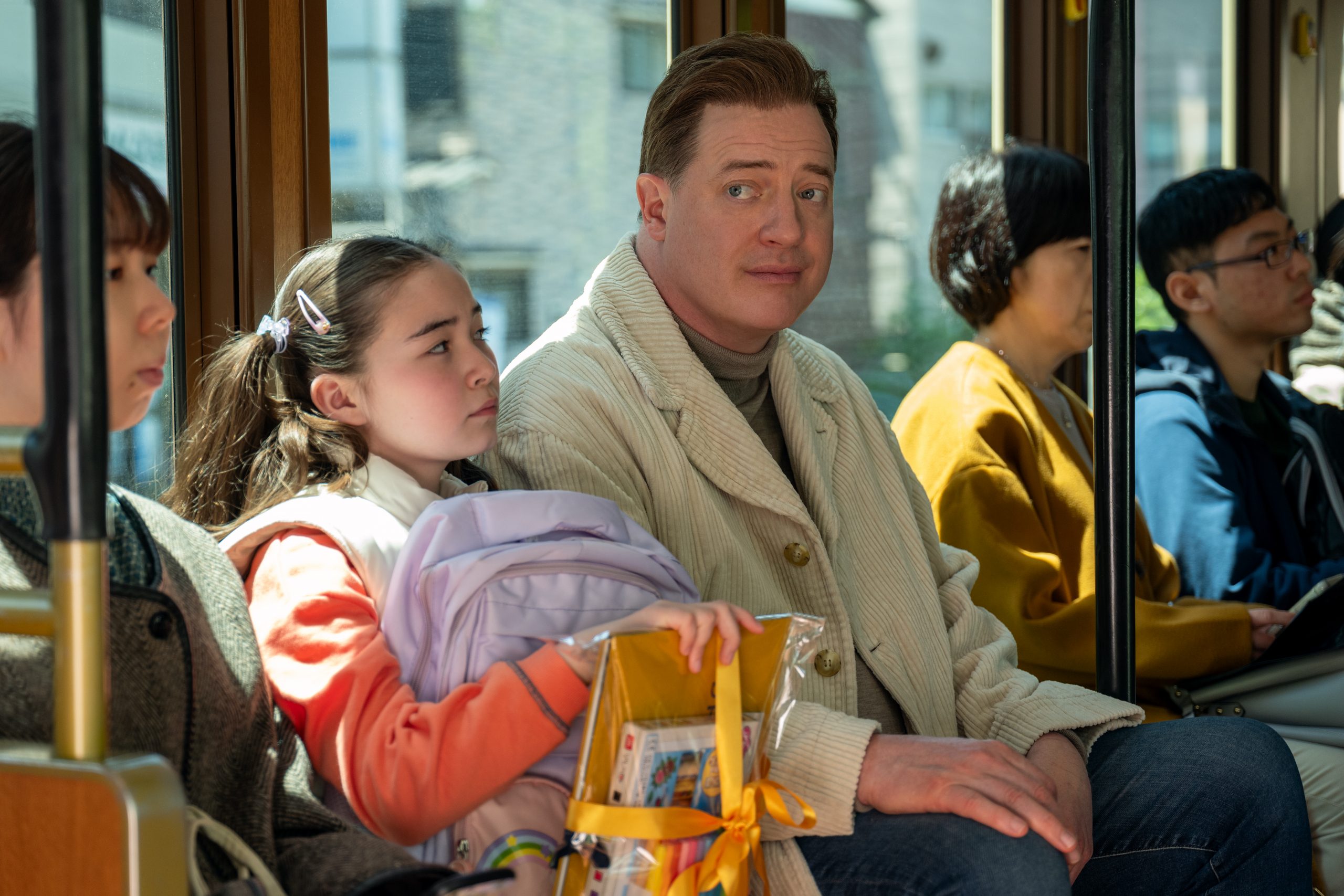
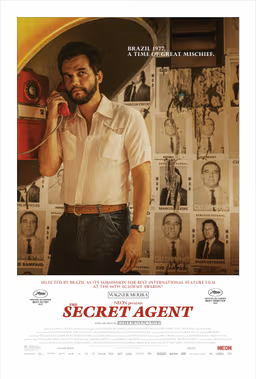
“The Secret Agent” (“O Agente Secreto”) (Brazil/France/Netherlands/Germany) (2/5) (Silver Hugo Award Winner, Best Actor, International Competition); Letterboxd (2/5), Imdb.com (4/10), TMDB.com (4/10), Imdb.com critics review; Web site, Trailer; #BrentMarchant #TheSecretAgent #ChiFilmFest #Brazil #militarydictatorship #universityresearcher #corruption #WagnerMoura
The key to making a successful political thriller is to maintain a taught sense of mesmerizing, edge-of-the-seat intrigue. Unfortunately, that’s precisely the element that’s missing in this overlong, annoyingly convoluted tale set in 1977 Brazil during the waning days of its military dictatorship. The story follows the life of Armando (Wagner Moura), a former university researcher targeted for manipulation and framing by a corrupt, influential businessman (Luciano Chirolli) when the educator refuses to play ball with him. This, in turn, leads to a death threat against Armando, who must do whatever it takes to try and clear his name and stay alive. In the process, however, Armando gets caught up in a web of deceit, criminality and personal peril involving a shady police chief and his dubious associates, a pair of ruthless hitmen, a group of Brazilian and Angolan political dissidents in hiding, and a Holocaust survivor mistakenly believed to be a Nazi refugee. From this, it would appear that the film has a premise filled with potential to make for an engaging yarn, but, regrettably, it fails under the weight of its many shortcomings, most notably an overextended narrative that excessively delves into the details of government research funding and sociopolitical clashes involving regional Brazilian cultural and political differences, material that’s often tedious and not especially engaging. To complicate matters, director Kleber Mendonça Filho has compiled a mishmash of filming and storytelling styles that frequently impairs the picture’s flow and style, including a wealth of easily deleted incidental material that tries viewer patience the further one gets into the story. This is clearly a case of a filmmaker in need of reining himself in, knowing when to kill his darlings, and unsuccessfully maintaining a level of suspense that, sadly, largely evaporates about an hour into the picture. In addition, this offering incorporates a present-day story thread involving a history student (Laura Lufési) assigned to transcribe surveillance tape recordings of Armando made at the height of his ordeal, a task that inexplicably captivates her, prompting her to learn more about the fate of her subject. It’s a needless subplot that evokes a huge “so what?” quality and could have readily been eliminated without damaging the picture in the slightest. I’m truly mystified how this bloated release ended up being the most honored candidate at this year’s Cannes Film Festival, capturing four awards, including best actor and director, as well as a Palme d’Or nomination, the event’s highest honor. This is a genre with so many other better offerings that one would be wise to watch in place of this disappointing effort.
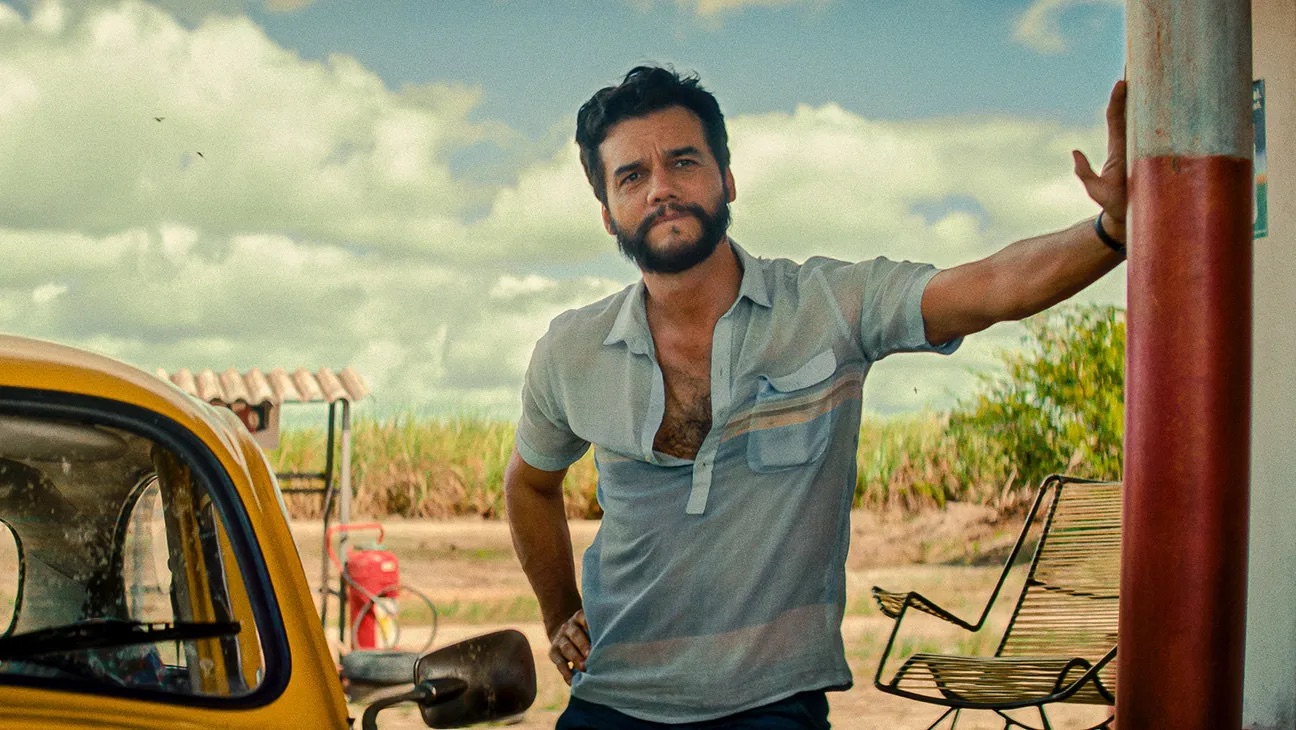
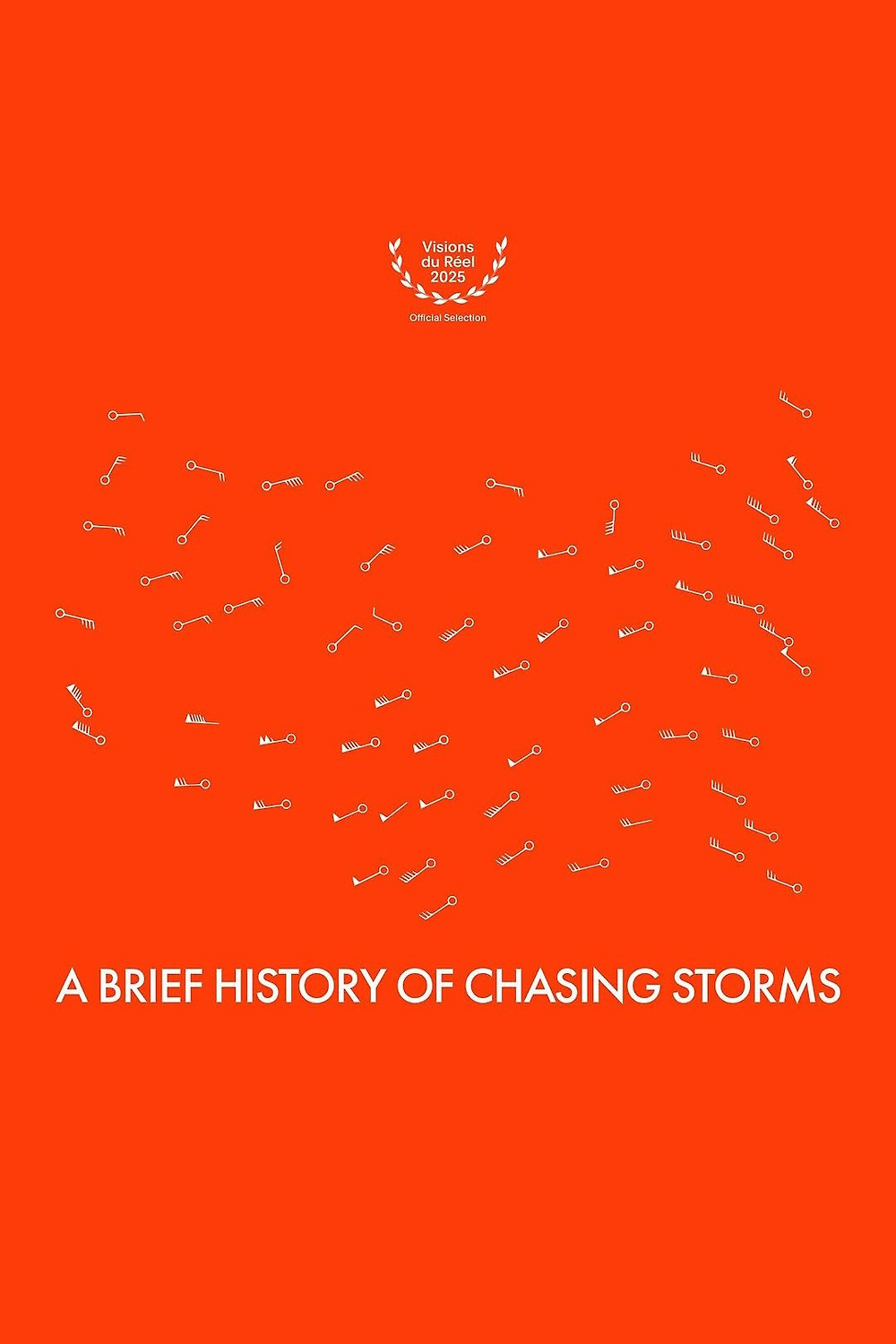
“A Brief History of Chasing Storms” (USA) (1/5); Letterboxd (1/5), Imdb.com (2/10), TMDB.com (2/10), Imdb.com critics review; Web site, Trailer; #BrentMarchant #ABriefHistoryofChasingStorms #ChiFilmFest #TornadoAlley #Oklahoma #Kansas #Texas #stormchaser
For what it’s worth, first-time filmmakers are sometimes the target of exaggerated criticism that may or may not be warranted. And, even though constructive suggestions may indeed be helpful for improving the quality of future projects, it’s important to remember that their initial efforts might not be a fair reflection of their innate talents, so tact would be recommended when rendering advice. However, it should also be noted that there are exceptions to this rule, when frank, plainspoken observations – a form of cinematic tough love, as it were – would truly be called for. That’s very much the case with the debut documentary feature from writer-director Curtis Miller, a project in serious need of retooling. Let’s start with what works: the film incorporates a fine score and soundtrack, and there is some intriguing montage work scattered throughout the picture. That, unfortunately, is about where its assets end. This alleged look at the history of chasing storms in the Tornado Alley region of Texas, Oklahoma and Kansas falls far short of its stated goal, especially when it comes to examining the time-honored phenomenon of storm chasers, a subject about which considerable documentation has already been compiled and produced (including the two narrative features in the “Twister” franchise (1996, 2024)) but that has inexplicably been relegated to little more than a passing afterthought here. Instead, much of the narrative focuses on the history of several extreme tornadic events over the years (some of which predate the rise of the practice of storm chasing as it’s known today), with little meteorological or physical documentation of these catastrophes, their aftermaths, or those who may have attempted to track them. These accounts are presented largely in the form of a loosely connected patchwork of anecdotal interviews with those who lived through the storms, the content of which often goes far off topic to address innocuous and highly irrelevant material, along with pointless, undocumented, unenlightening observations about now-vacant lots where structures once stood. But, if this is truly supposed to be an examination of storm chasing, where is the material about it? In fact, the one storm chaser who is interviewed for this film spends more time talking about his car than anything else. And, to put it bluntly, who cares? While the anecdotal material provides a personal touch, the film sheds little light on its alleged core subject, the motivations driving those who engage in it, and the technology and practices used by its committed investigators. In essence, this release feels more like a collection of loosely assembled home movies and found footage strung together about a handful of specific storms without providing much insight or history into the larger subject it’s supposedly seeking to cover. To its credit, at least the picture’s title is accurate in that it offers up a “brief” history of storm chasing, given that it sports a scant 71-minute runtime, of which little is devoted to its purported primary subject. Indeed, considering what’s presented here, one might actually learn more about storm chasing by spending a few hours watching The Weather Channel instead. These are fundamental filmmaking considerations the director should sincerely take to heart when working on future projects.
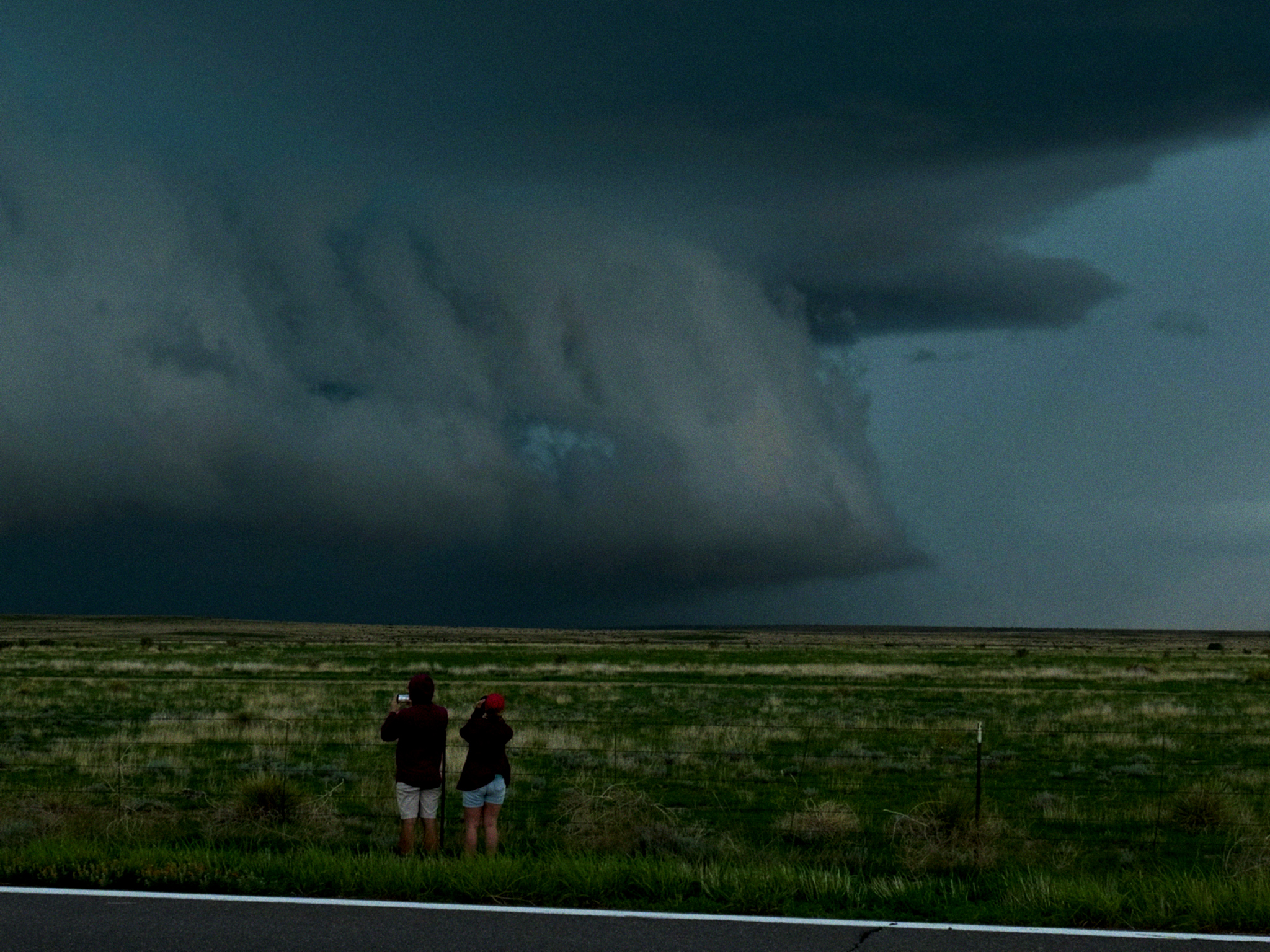

“Emi” (Argentina/Uruguay) (1/5) (OutLook Competition) (World Premiere); Letterboxd (0.5/5), Imdb.com (1/10), TMDB.com (1/10), Imdb.com critics review; Web site; #BrentMarchant #Emi #ChiFilmFest #Argentina #Uruguay #motorcyclemechanic #adoptedson
As I have stated on numerous previous occasions, predictability is, in my view, the cardinal sin of effective moviemaking. If one can discern what will happen in advance, what’s the point in watching the film? Unfortunately, such is the case in the latest offering from director Ezequiel Erriquez Mena, a story so easy to figure out that virtually its entire narrative can be foreseen within the first few minutes of the picture. In fact, its plot is so patently obvious that it’s almost impossible to discuss this release without giving away what’s going to occur despite all efforts at refraining from playing spoiler. Which naturally once again raises the question, if that’s the case, what’s the point of giving it a look (or, even more fundamentally, wondering why it was made in the first place)? For what it’s worth, 18-year-old Emi (Benicio Mutti Spineta), the adopted son of two loving parents (Mara Bestelli, Luis Ziembrowski), has begun having questions about his birth family, inquiries that his folks (particularly his mother) treat evasively. Yet, despite this, Emi’s questions persist, especially when clues about his past continue to emerge, making him wonder if his suspicions will ultimately prove to be correct. In the meantime, he spends his days working as an apprentice motorcycle mechanic and hanging out with his boyfriend, Claudio (Lucas Tresca). But, when an (allegedly) unexpected event arises, long-hidden secrets threaten to definitively surface (that is, if one somehow hasn’t already figured them out by this point). Wholesale predictability aside, though, there are several other issues that seriously burden this film. For instance, while it’s certainly gratifying to see Emi’s sexuality so readily and matter-of-factly accepted, this aspect of his story goes almost completely undeveloped (not under-developed but wholly un-developed), prompting one wonder why it was included to begin with. Then there’s the protagonist’s woeful lack of character development, making Emi appear as one of the most uninteresting 18-year-olds anyone has ever met. In fact, the development level of the film’s supporting players outstrips that of the lead by a wide margin, exposing just how boring an individual he really is. And, because so little of anything meaningful or engaging occurs in this anemically constructed tale, the picture is heavily padded just to get it to its 1:32:00 runtime. This is accomplished with protracted montages of nighttime motorcycle rides set to a passable original score, as well as mentoring sessions on the intricacies of bike repair (showing viewers much more about this subject than they probably ever wanted to know). When all of these shortcomings are considered collectively, it’s hard to fathom how this project was green-lighted. It could have readily been pared down to a film short, but, even at that, it still would have required the incorporation of material eminently more involving than what’s depicted here. Don’t waste your time on this one.


“The Girl in the Snow” (“L’Engloutie”) (France) (1/5) (Special Mention Award Winner, New Directors Competition) (North American Premiere); Letterboxd (0.5/5), Imdb.com (1/10), TMDB.com (1/10), Imdb.com critics review; Web site, Film Clip; #BrentMarchant #TheGirlintheSnow #ChiFilmFest #France #HautesAlpes #schoolteacher #LouiseHèmon #superstitions
When a filmmaker tackles a project involving a personal connection, there’s always a risk that the director could be too close to the material to do it justice. And that would seem to be the case with the debut narrative feature from filmmaker Louise Hémon, who’s best known for her documentary work. However, that shift in genre does not seem to be the primary issue with this offering. The problem here is more contextual; indeed, it would appear that the director could be so acquainted with the subject matter that she assumes her audience may have the same degree of familiarity with it as she does and that her cinematic interpretations of the material would be comparably understood accordingly. As a French filmmaker dealing with French material, that might be true for audiences of French viewers. But, for those from outside France or unfamiliar with late 19th Century French history and culture may easily find themselves lost (note my raised hand here). Set in the winter of 1899, the picture tells the story of a teacher (Galatéa Bellugi) from an apparently cosmopolitan background who arrives in a remote Alpine hamlet populated by largely uneducated, homespun residents who jealously cling to their traditional folk beliefs and assorted superstitions. She attempts to broaden the horizons of her students and their families, only to find resistance to her radical ideas from the outside modern world. And, when the community begins experiencing a series of avalanches and mysterious disappearances, residents begin to suspect that she and her newfangled ways might somehow be the cause, one that must be stopped. It’s a scenario reportedly similar to the experiences of the filmmaker’s ancestors, who themselves once served in similar teaching capacities. It also creates a narrative that feels like a loose cross between “Midsommar” (2019) (or would that be “Midwinter”?) and “Vermiglio” (2024). But the specific events in this story never make any of this especially clear. The result is a seemingly random, glacially paced, visually meandering tale that feels somewhat like an exceptionally slow-burning horror film but that never quite feels confident enough in itself to make the leap necessary for enthusiastically embracing such a definitive approach. To make matters worse, the film is often too dark – literally – excessively drawing upon dim lighting with candles, torches and fireplaces that’s so subdued that it’s frequently difficult to identify the action unfolding on screen (ambiance is one thing, but indiscernibility is something else entirely). Given the foregoing, “The Girl in the Snow” regularly comes across as not being up to the task of carrying out what it’s allegedly attempting to achieve. Indeed, in light of that, it would seem that it might truly be best to stick with what one does best than to stray far afield into new and uncharted territory.

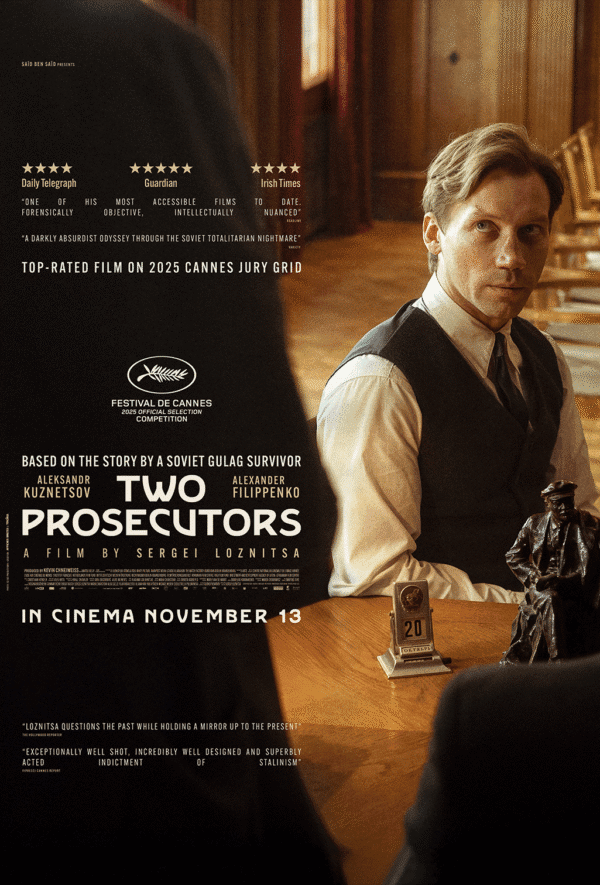
“Two Prosecutors” (“Zwei Staatsanwälte”) (France/Germany/Netherlands/Latvia/Romania/Lithuania/Ukraine) (1/5); Letterboxd (0.5/5), Imdb.com (1/10), TMDB.com (1/10), Imdb.com critics review; Web site, Trailer; #BrentMarchant #TwoProsecutors #ChiFilmFest #USSR #Stalin #secretpolice #NKVD
Trust and idealism are certainly noble qualities, but, when taken too far, they can easily morph into naïvete and gullibility. And those qualities, in turn, can carry seriously devastating consequences. But what I have difficulty understanding is why anyone would legitimately want to make a film showcasing such an unengaging, uninspired outcome. Is it supposed to be taken as a cautionary tale? A tragedy of epic proportions? A case study of the consequences that come with not waking up in time to smell the coffee? What’s more, circumstances like this are made even worse when the victim in such a scenario can clearly foresee what lies ahead but still falls prey to it anyway. Is this supposed to enlighten us somehow? That’s hard to fathom when we can’t help but see what’s coming (even if the protagonist is unwilling to do so despite his prescience). If you can imagine that, then you have a pretty good idea of what’s behind this patently obvious historical drama from writer-director Sergey Loznitsa. Set in the USSR in 1937 at the height of Josef Stalin’s political tyranny, the picture tells the story of an idealistic young prosecutor (Alexander Kuznetsov) responsible for investigating the complaints of everyday comrades whose “rights” (if they can even be called that) have been violated by the state, particularly operatives of the NKVD, the nefarious Soviet secret police. When he learns that unspeakable abuses have been rampantly doled out against longtime loyal Communist Party members – many of them older, diehard Bolsheviks who truly believed in and fought for the promises of Vladimir Lenin’s revolutionary ideology – he courageously takes up their cause, it being one that he, as a devoted Party himself, firmly supports. And, given the scope of what has been unfolding, he’s well aware of the perilous risk to his own well-being but forges ahead anyway, only to be surprised by the fate that awaits him. But how seriously can this be taken in light of the spot-on suspicions he harbors about what could lie ahead? Frankly, this is where the picture turns wholly implausible and unsupportable; it’s devoid of virtually all meaningful credibility and does little to foster genuine sympathy for its woefully naïve protagonist. Moreover, if this weren’t bad enough, the story plays out primarily through a series of long-winded, belabored conversations, dialogues connected by a series of mundane, exceedingly dull transitionary scenes that play out in tedious, painstaking, slow-motion detail. In short, there are no surprises here, and what does unfold on screen makes watching paint dry look captivating by comparison. Sadly, whatever honorable heroics are meant to be celebrated here are buried under a morass of boredom, predictability and an utter lack of common sense, leaving one wonder what the filmmaker was going for here in the first place.
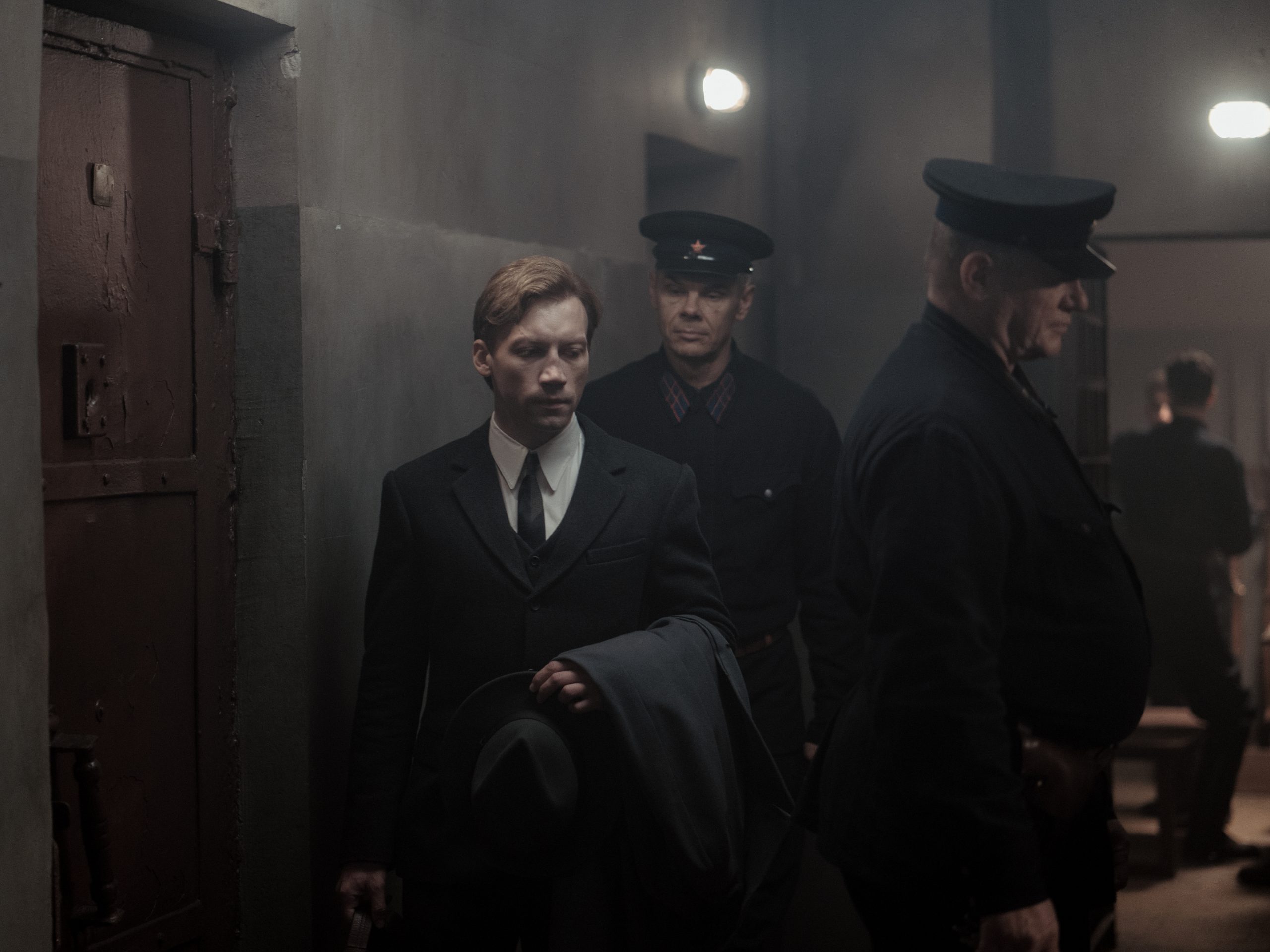
Copyright © 2025, by Brent Marchant. All rights reserved.



